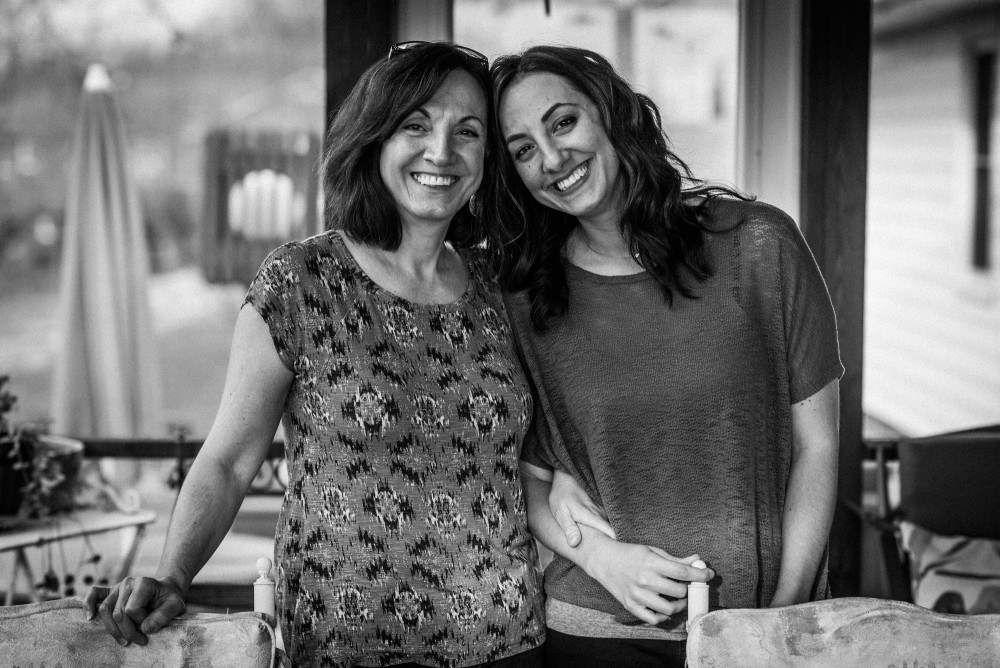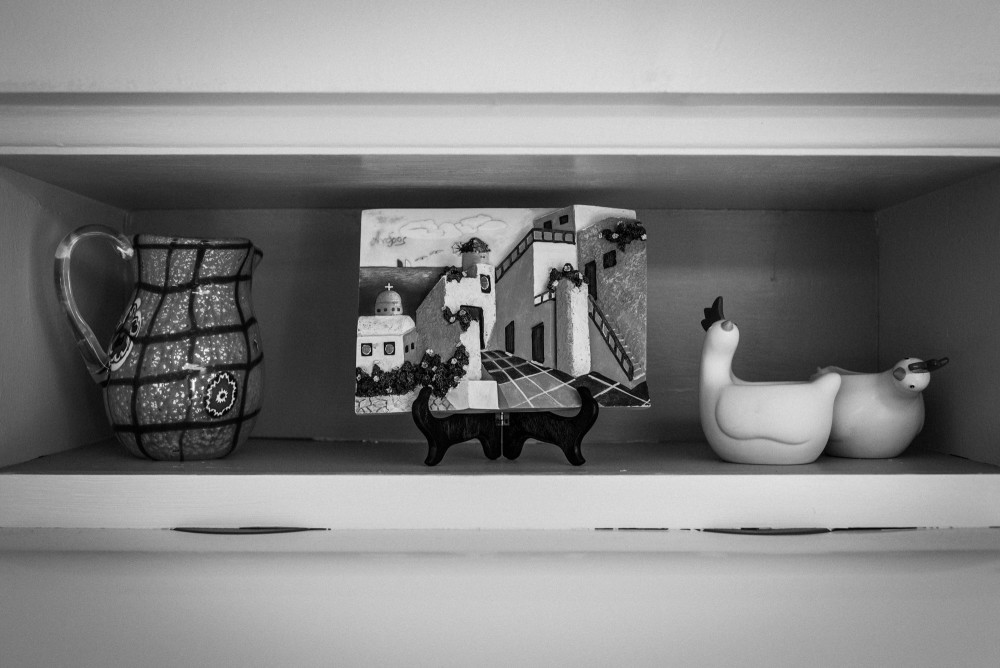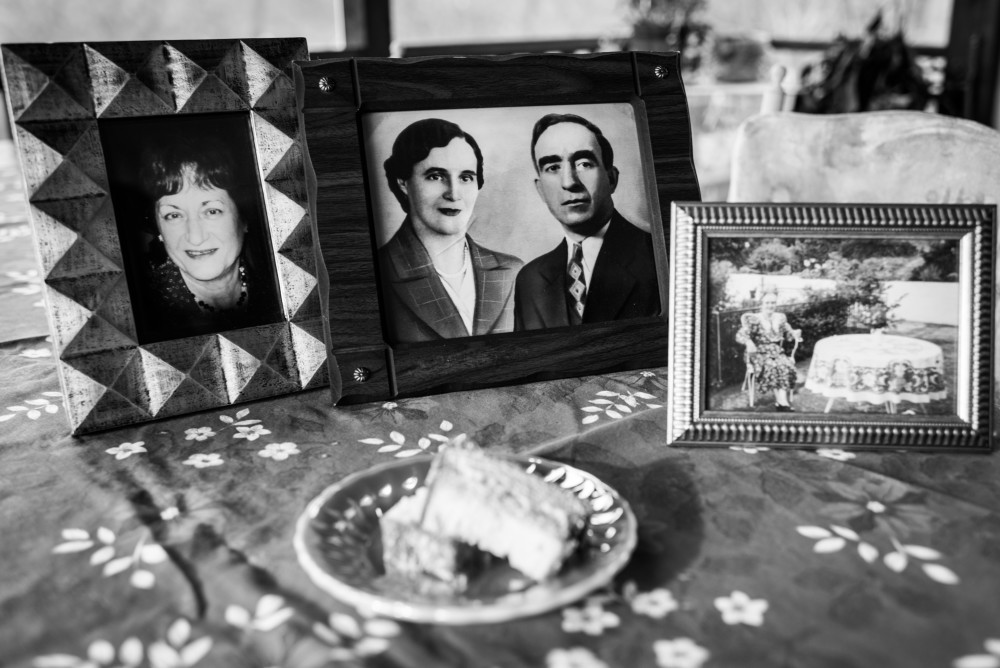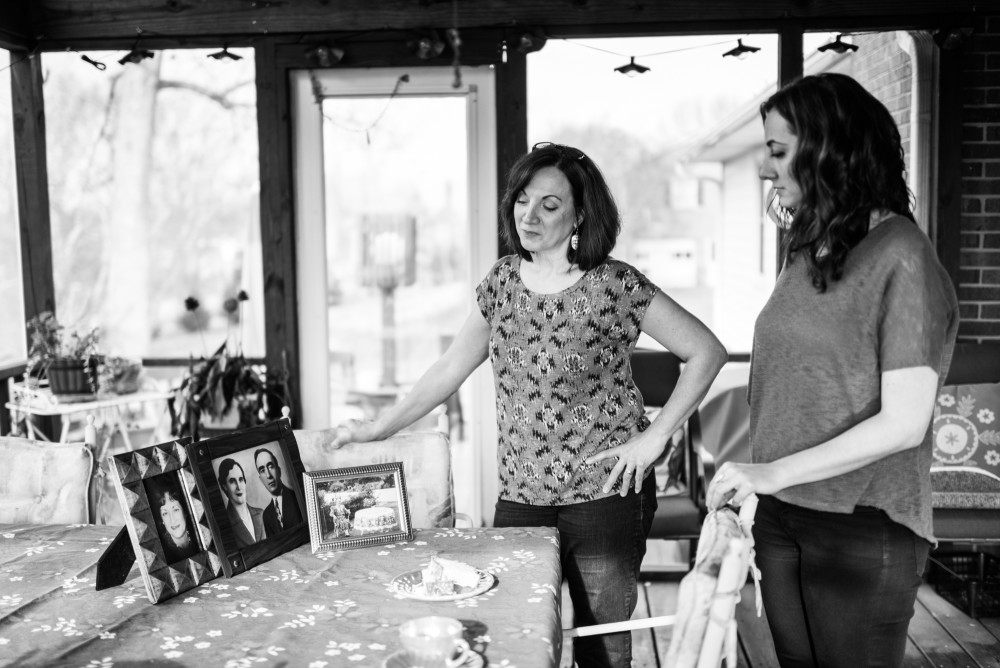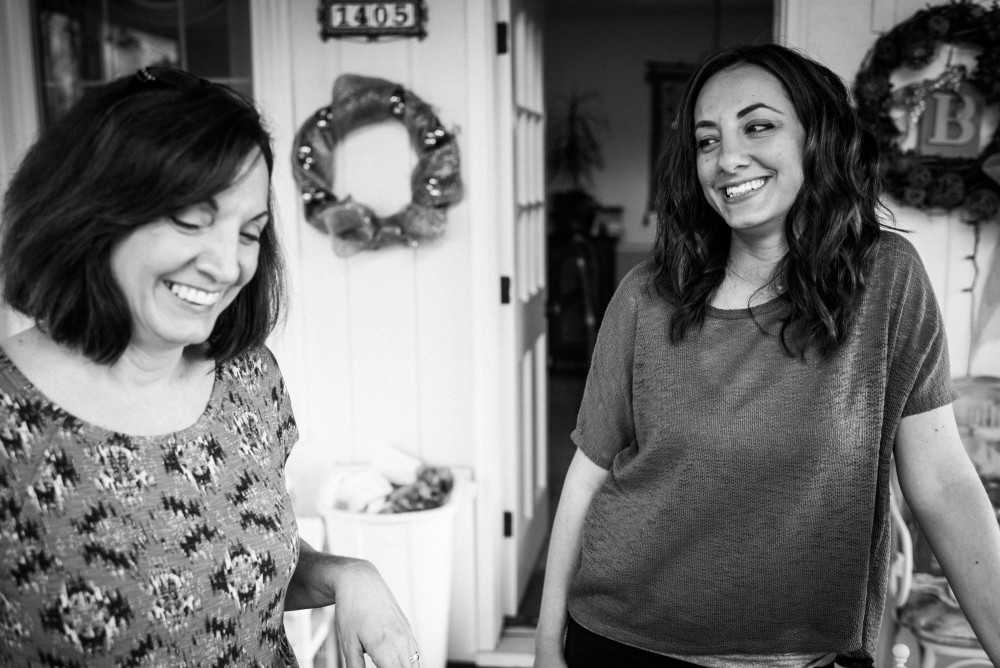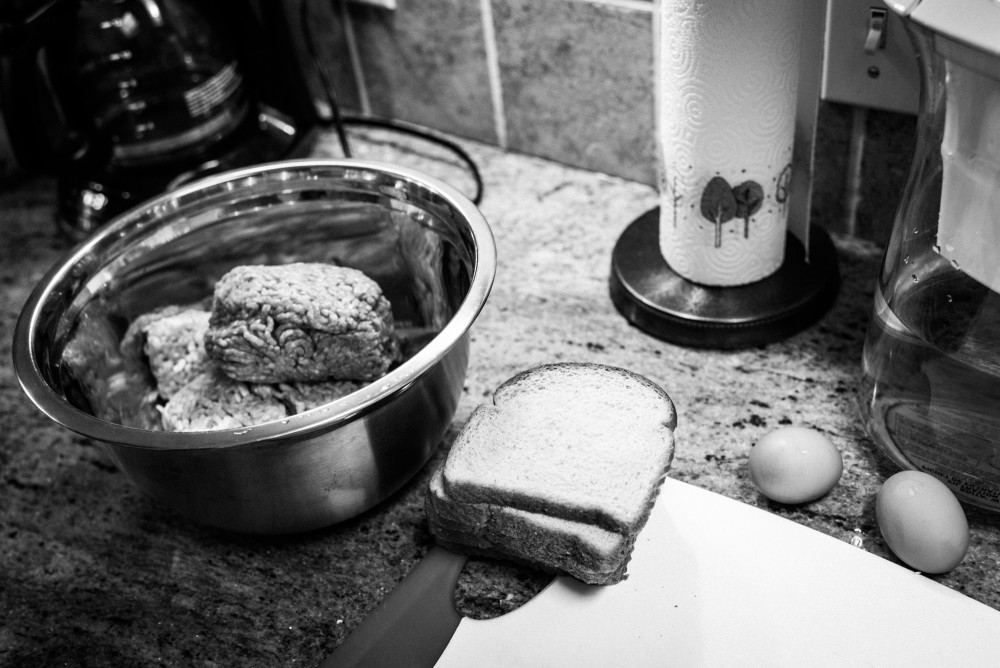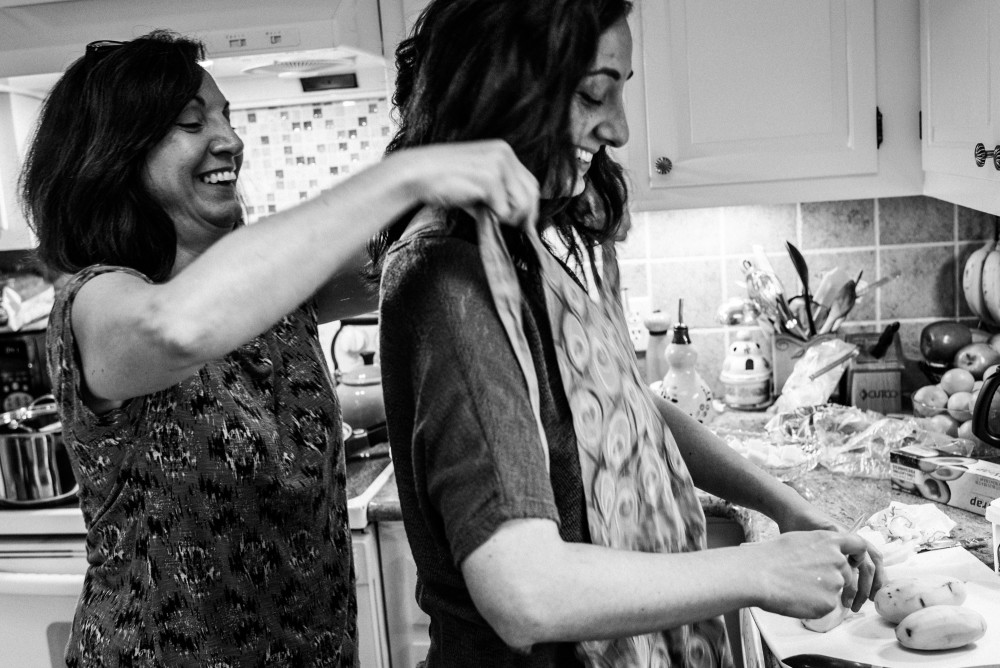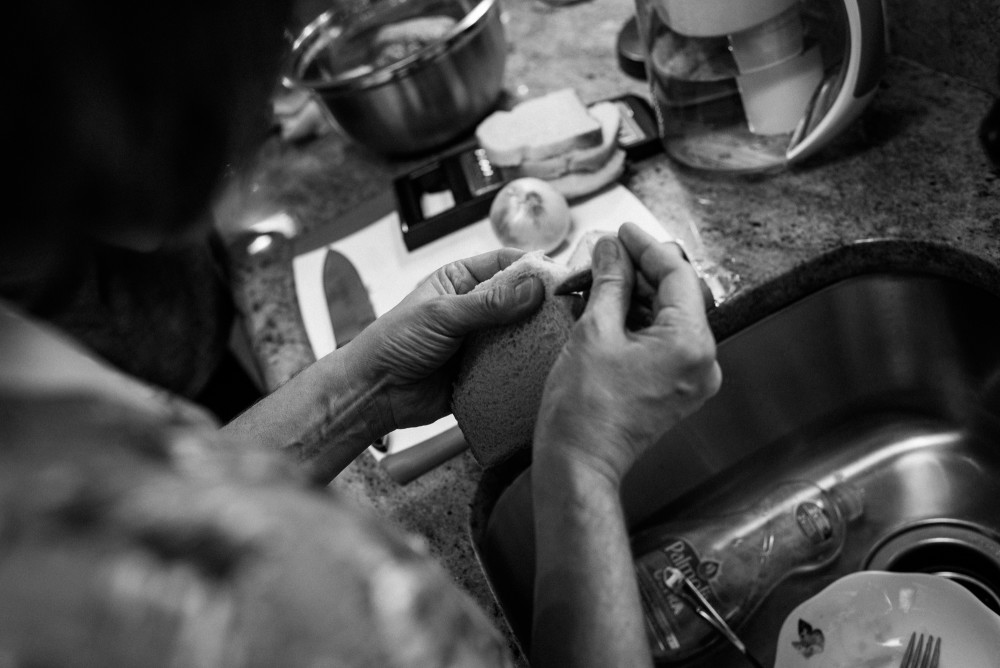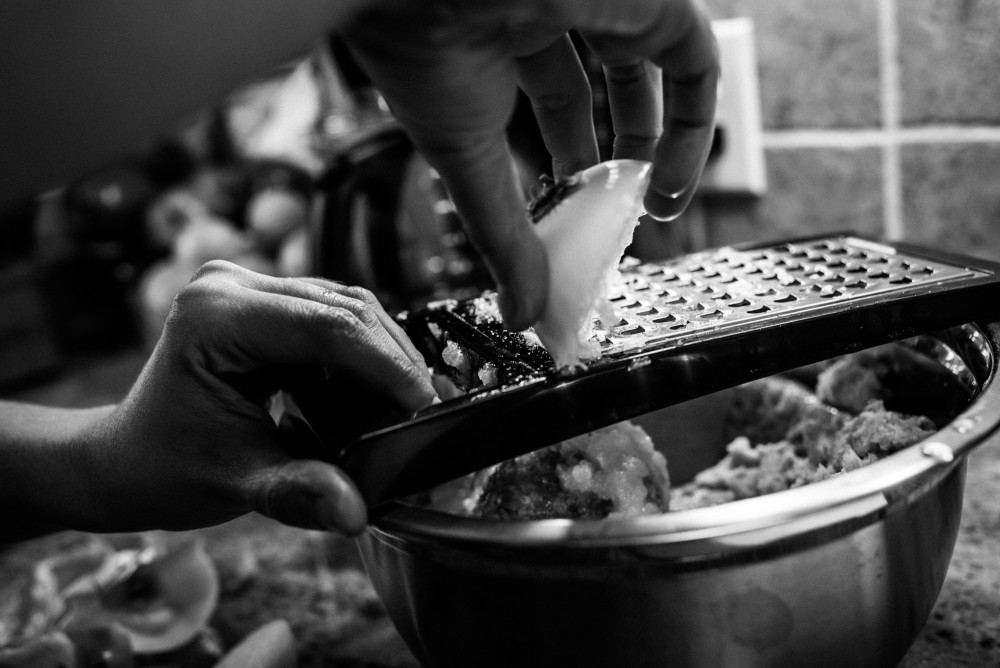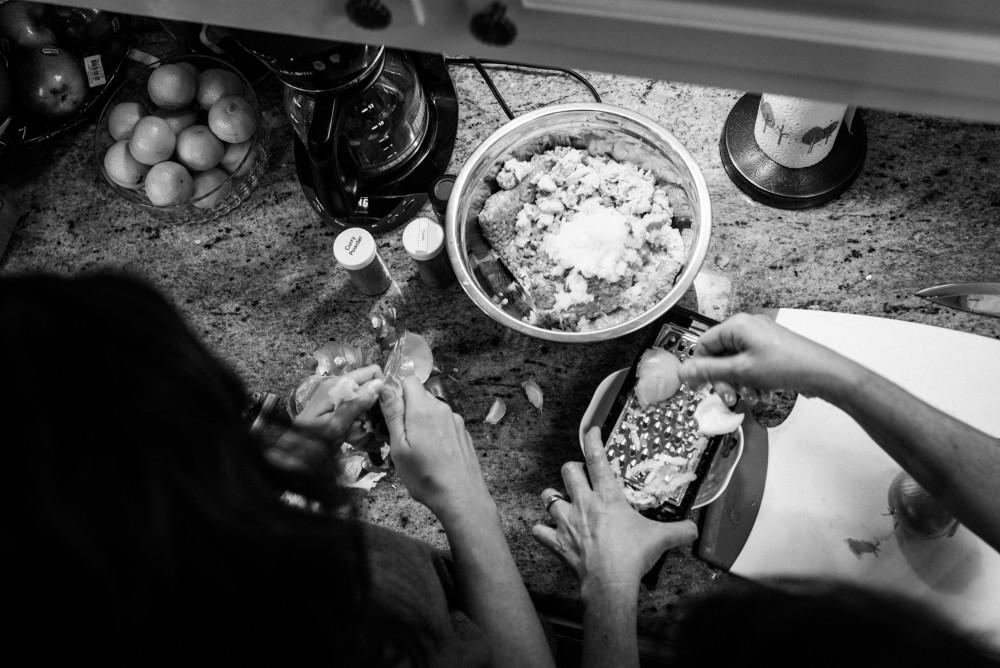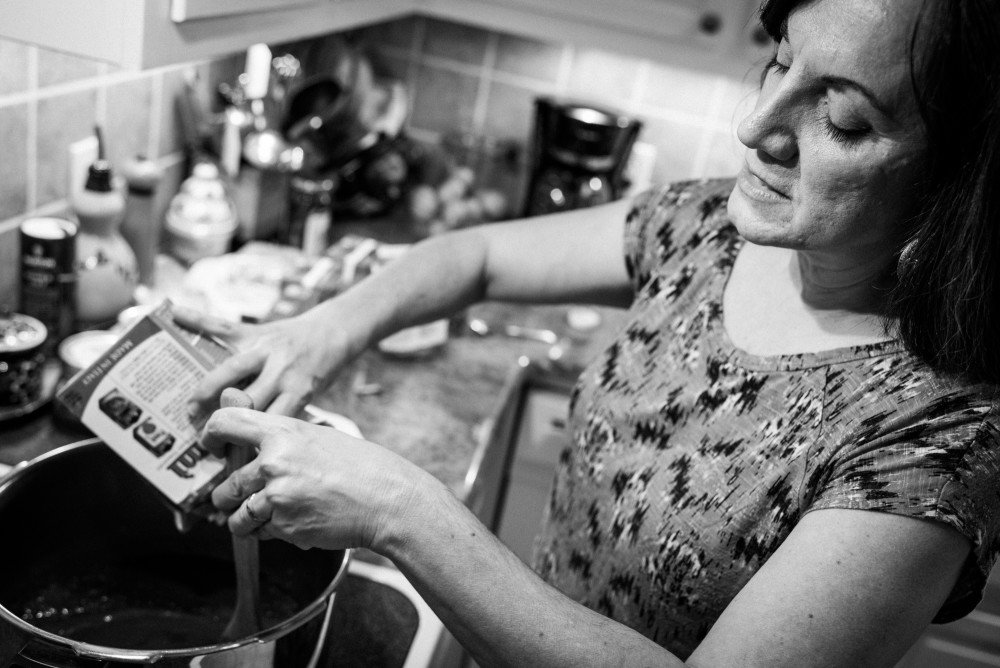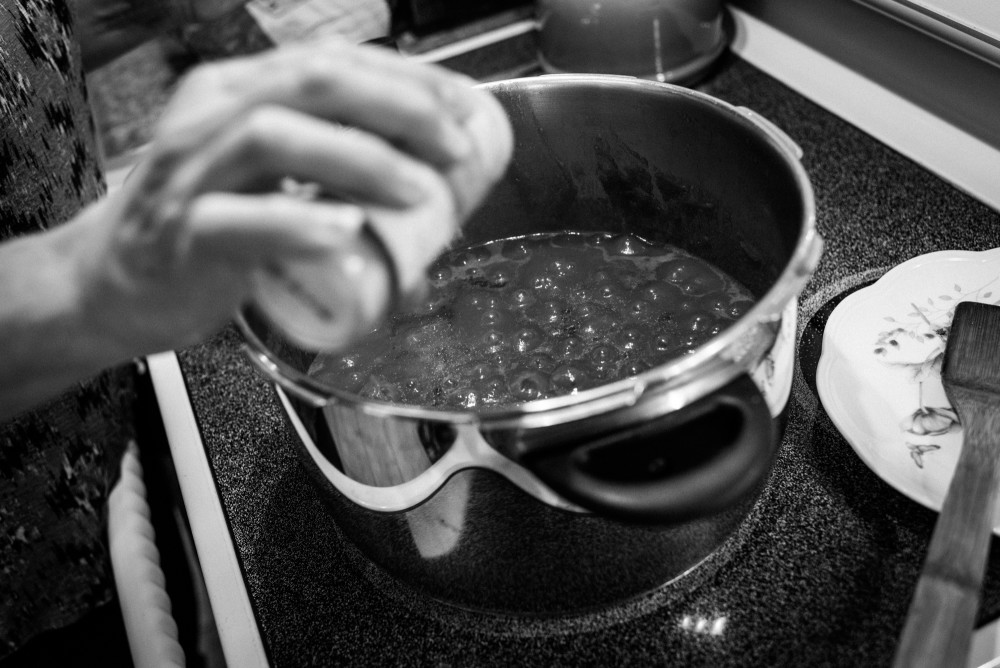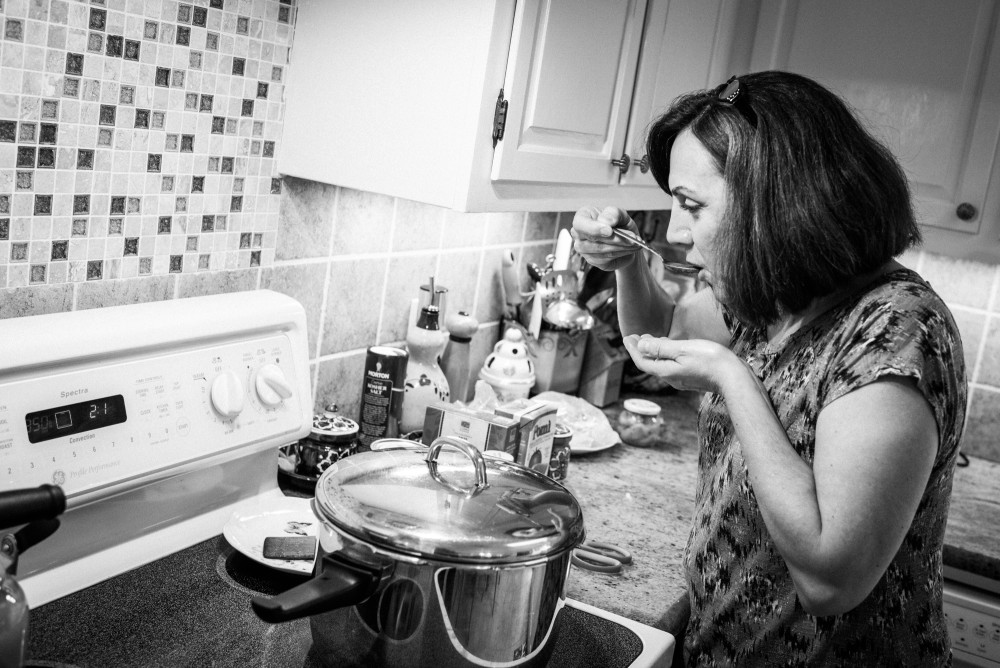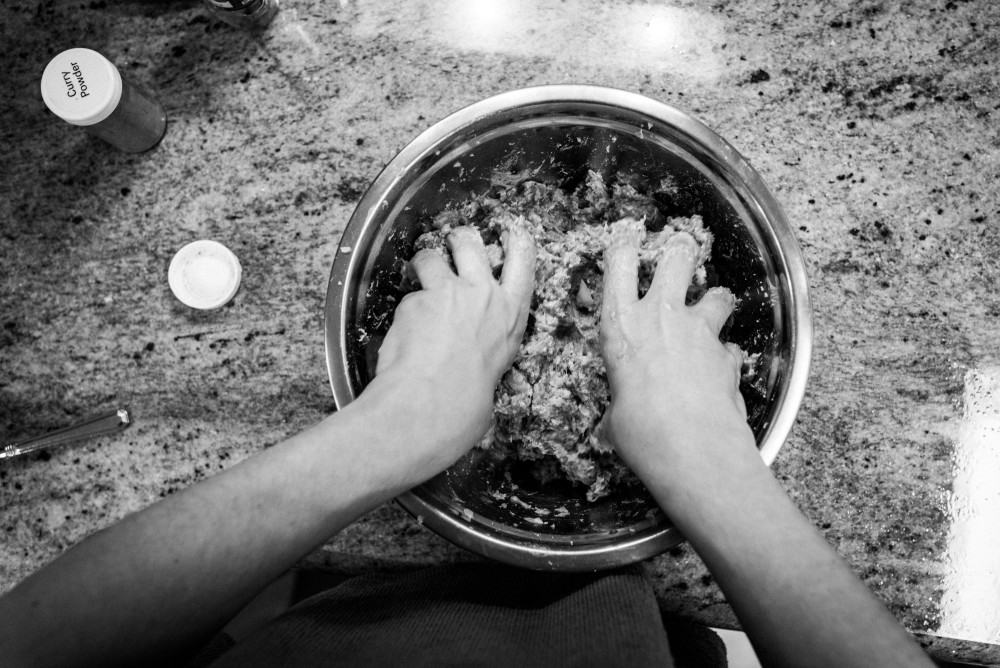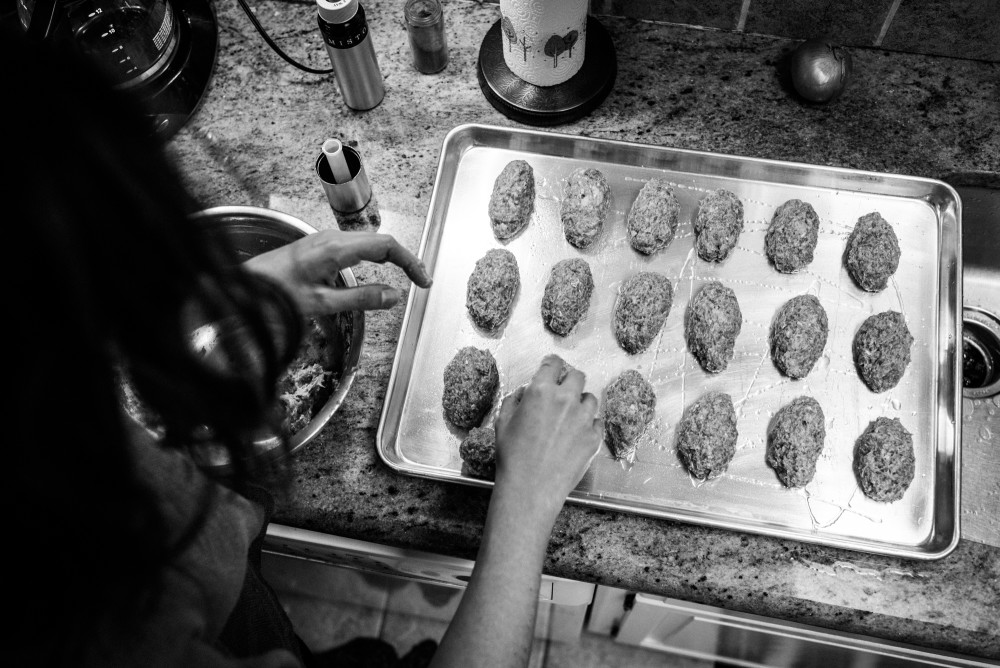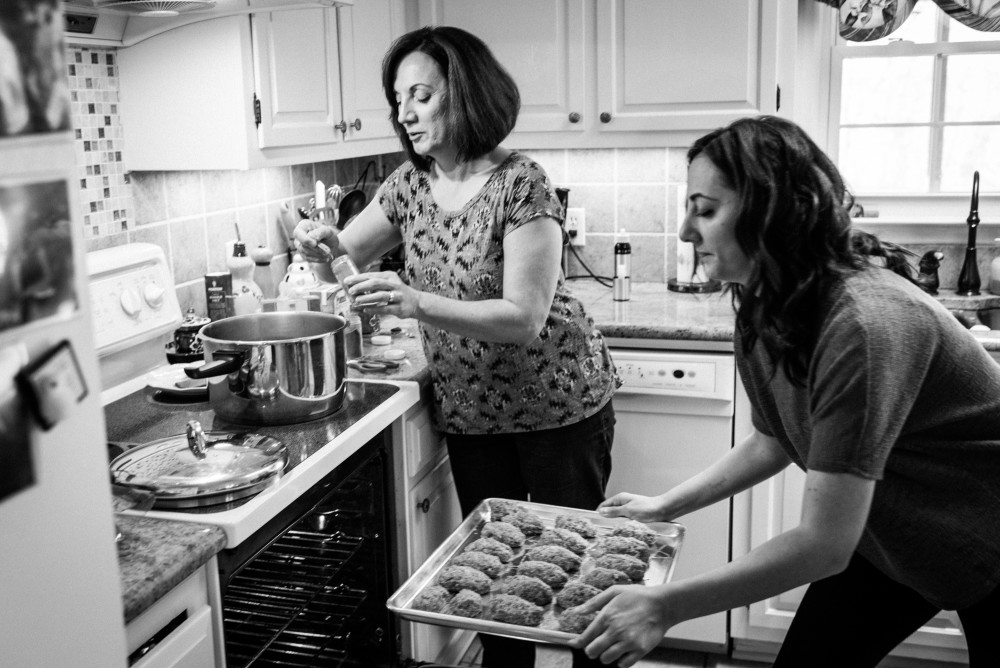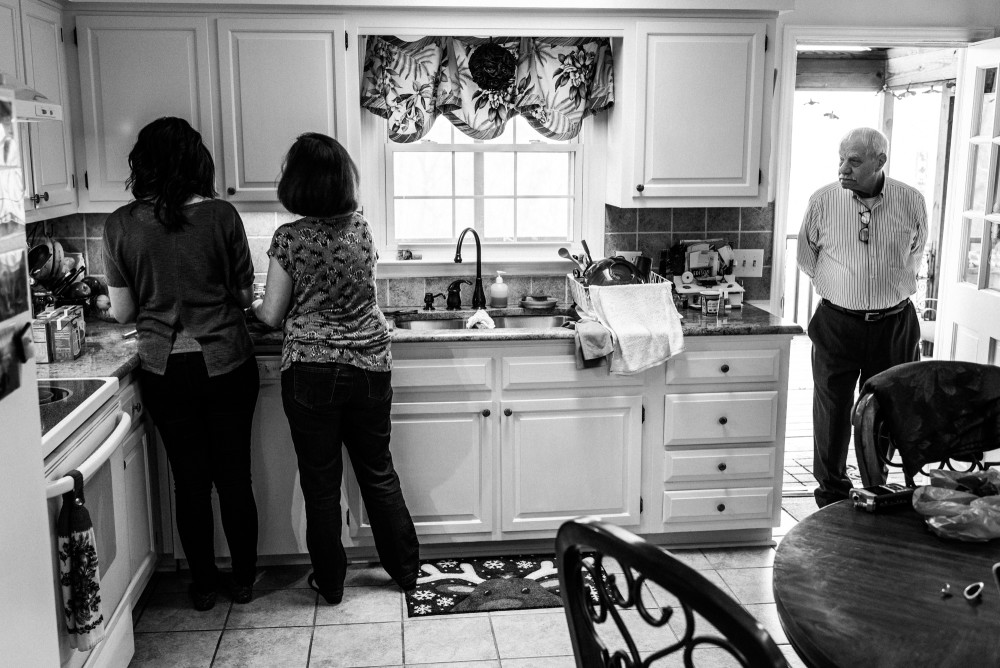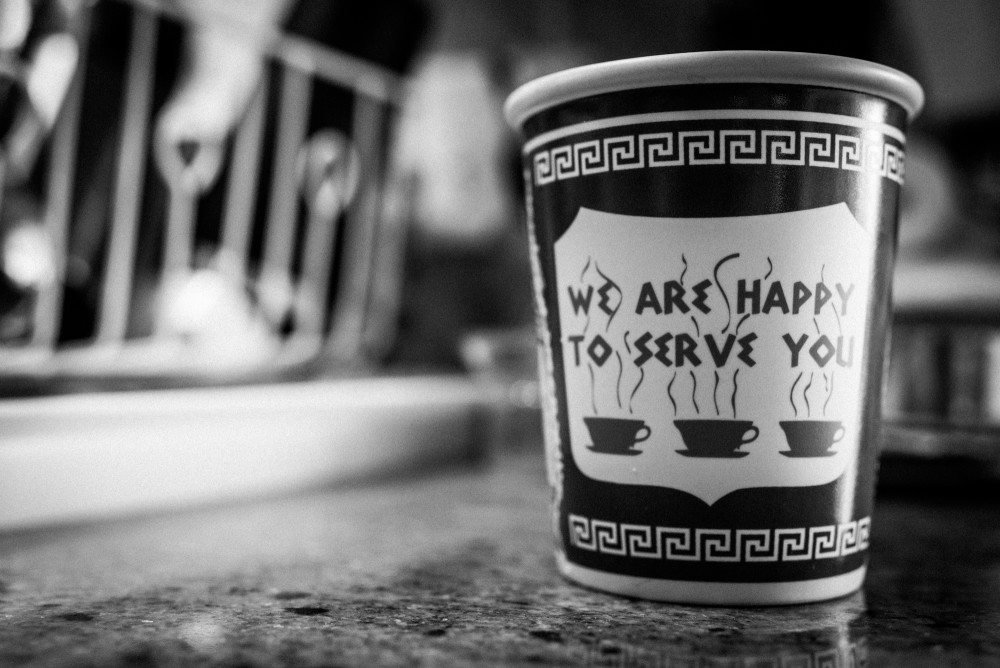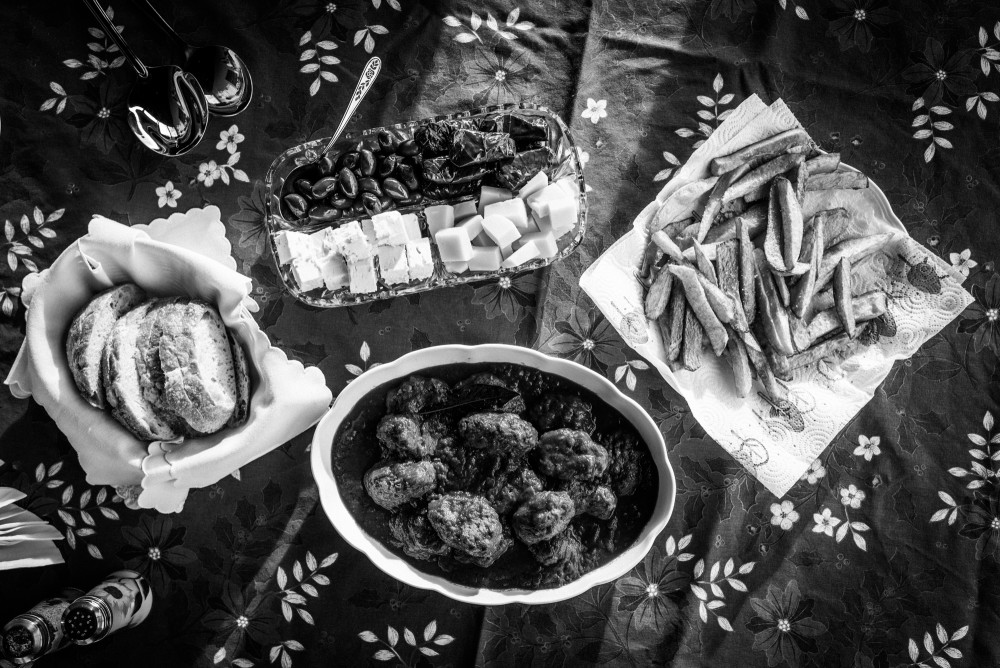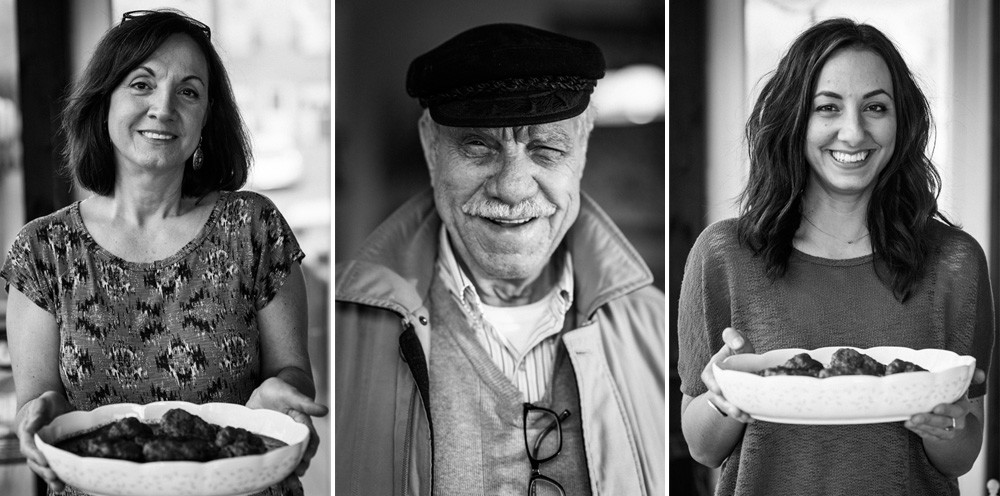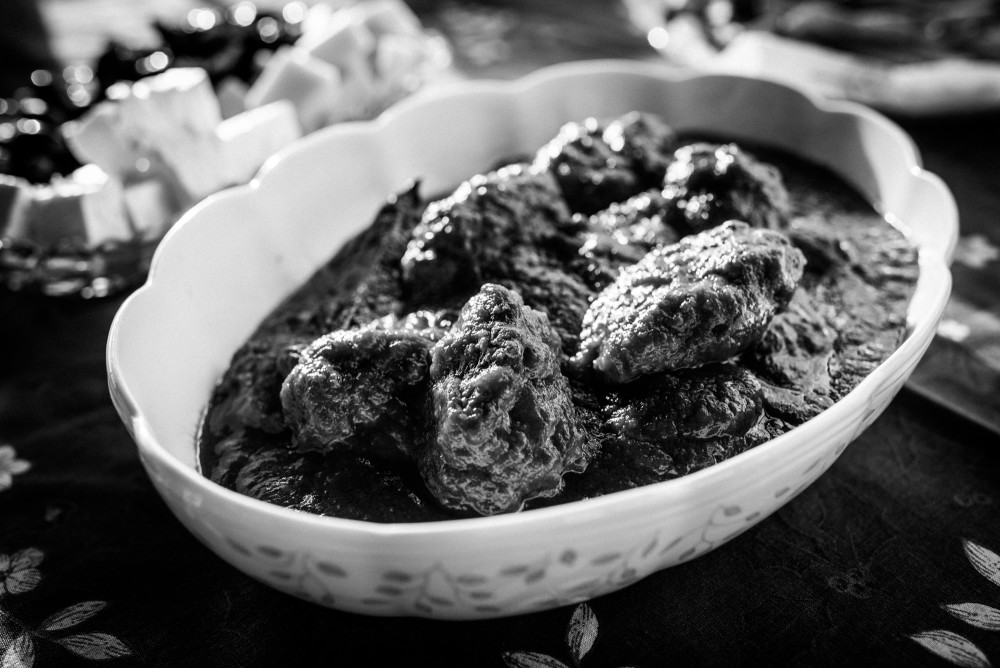In the Kitchen with the Bouloubasis Family
“Do you want some coffee?”
That’s the first question Lisa asks after welcoming me into her home. “I wanted to have baklava ready, but I’m really behind on my baking. It would have been nice to have dessert for you.”
I met Lisa’s daughter, Victoria, a few years back—we were sitting on a bus in Turin, Italy, amongst other delegates to Slow Food’s recurring Terra Madre event. We’ve talked at length about food in our friendship since, but this is the first time we’re actually cooking together. On the menu: soutzoukakia, an almond/egg-shaped Greek meatball.
Lisa sets out a few photos of her family. “My mother, she was from the island of Andros,” one of the Cyclades islands in Greece. “With the super ferry, it’s maybe two hours from Athens.”
“Everyone there who could work, would leave on the ships and would be gone for years. My grandfather—my mother’s father—he left. It was a bad time all over the world in 1914, but the United States was the land of plenty.” He jumped ship and came to Buffalo. “He told me it was a very poor area; that they had no money, and he lived in a boarding house.”
“He saved up to go back to Greece. He was 32, and came back to the island, and bought that house that’s still standing, that my aunt lives in now. He was ready to get married. A ‘ready-made groom,’ as they say in Greece. So, he went to the island square, and he saw my grandmother from far away.”
“Who is that girl?” he asked. “She’s beautiful.”
“No, you can’t marry her,” his sister insisted. “She’s engaged to someone else!”
“Well, I don’t care. I want you to go and talk to her—find her and tell her that I want to marry her.”
“So, that’s what happened. His sister went out and found Yiayia. She agreed, and they eloped.”
“He looked like Mr. Magoo,” Victoria asserts.
“No, he was handsome! And she didn’t know who Mr. Magoo was until she came to America. He was a little short, but he was the strongest man.”
Back in the kitchen, Lisa sets out ingredients for the soutzoukakia, while Victoria researches some history behind the dish. “My great grandmother, her family came from Constantinople. My grandmother—my yiayia—they learned a lot of recipes that were a little…different.”
Victoria looks up. “They mostly attribute this dish to Smyrna (İzmir) in Turkey. But when it was still part of Greece, during the Turkish-Greek War, the Turks burned it down in 1922, so a lot of Greeks basically came back to Greece as refugees (if you want to use that term). The recipe’s attributed to them.”
“It’s anybody’s guess who made it first,” Lisa concedes.
“My yiayia used cinnamon in her sauces—there’s cumin in the soutzoukakia, and cinnamon in the sauce.”
But there’s also something unique to this recipe.
“My mother, she was making this for company. For some reason, instead of grabbing cumin, she grabbed the curry; she put curry in the sauce, she put it in the meatballs. We were eating it, and we liked it, but there was something different about it. She would buy spices because she liked they way they looked, but I don’t think she’d ever used curry, and she put a LOT in.”
That addition is carried forward in this recipe, but in moderation. “We liked it, but we didn’t want to make it overpowering and completely change the traditional way it was supposed to taste, so we put a dash in the sauce.”
Victoria’s grandfather, Hercules, comes up stairs to see what’s going on. He takes a seat on the couch in the adjacent room. As the meatballs go into the oven, Lisa once again offers coffee. This time, I accept.
“If you’re waiting for it, you cannot let it boil up and spill over. That’s bad luck,” Lisa explains, heating up the briki (a small kettle for coffee).
“They say it’s for a single man,” Victoria adds. “You won’t get married.” (This, I would learn, is a recurring theme in Greek superstition.)
Soutzoukakia (Greek Meatballs)
Ingredients
For the meat:
For the sauce:
- 16 oz. can of tomato sauce 4
- 1 can of chopped tomatoes, drained, or a couple small fresh tomatoes, like roma
- 1 tsp cinnamon
- 1 stick cinnamon
- A dash of curry powder
- 1 Tbls olive oil
- Red wine (optional)
1 We used lamb.
2 “Instead of using breadcrumbs, we use the soft white bread, and wet it. It gives it a nice fluffiness. My mom takes the crust off.” – Victoria
3 It’s possible that this was doubled, so add to taste.
4 “I like to buy a good sauce, like the Pomi brand.” – Lisa
Instructions
Preheat the oven to 350°F. Combine the ground round, ground pork/lamb, onion, and garlic in a large bowl. Soak the bread slices in water, squeezing out the excess liquid, and crumble into the bowl. Add cumin, olive oil, salt and pepper. Mix everything together by hand.
Roll the meatballs in an oval shape, and place each on a cookie sheet lined with aluminum foil and drizzled with a little olive oil. Bake the meatballs until they are golden brown on the outside, or look almost fully cooked (you don’t want to overcook them!).
“Traditionally, people fry them. We stopped doing that years ago, and it’s just as good.”
While the meatballs are baking, add the tomato sauce, chopped tomatoes, cinnamon, curry powder, olive oil, salt, pepper, and red wine (optional) in a large pot. Let the sauce simmer on low. When the meatballs are almost done, carefully place them in the sauce. Cover the pot and let it cook on low to medium heat for 15-20 minutes (or until you think it’s done). Add more salt and pepper to taste.
Serve with orzo, rice, or mashed potatoes. “In the restaurants they serve it with thick French fries,” Victoria tells me. Lisa fries up a batch, and we’re ready to eat.
“We don’t need a salad,” Lisa insists, as she sets the table. “We’ll take out some Greek cheese, some olives, and make it authentic. If we’re going to mess up and eat a lot of fatty foods, might as well go all the way.”
Want to preserve your family’s history?
Recipes and photos go a long way, and I’d love to help you collect both. Tell me a little more about the meals you share together, and I’ll reach out about opportunities to participate in this project.
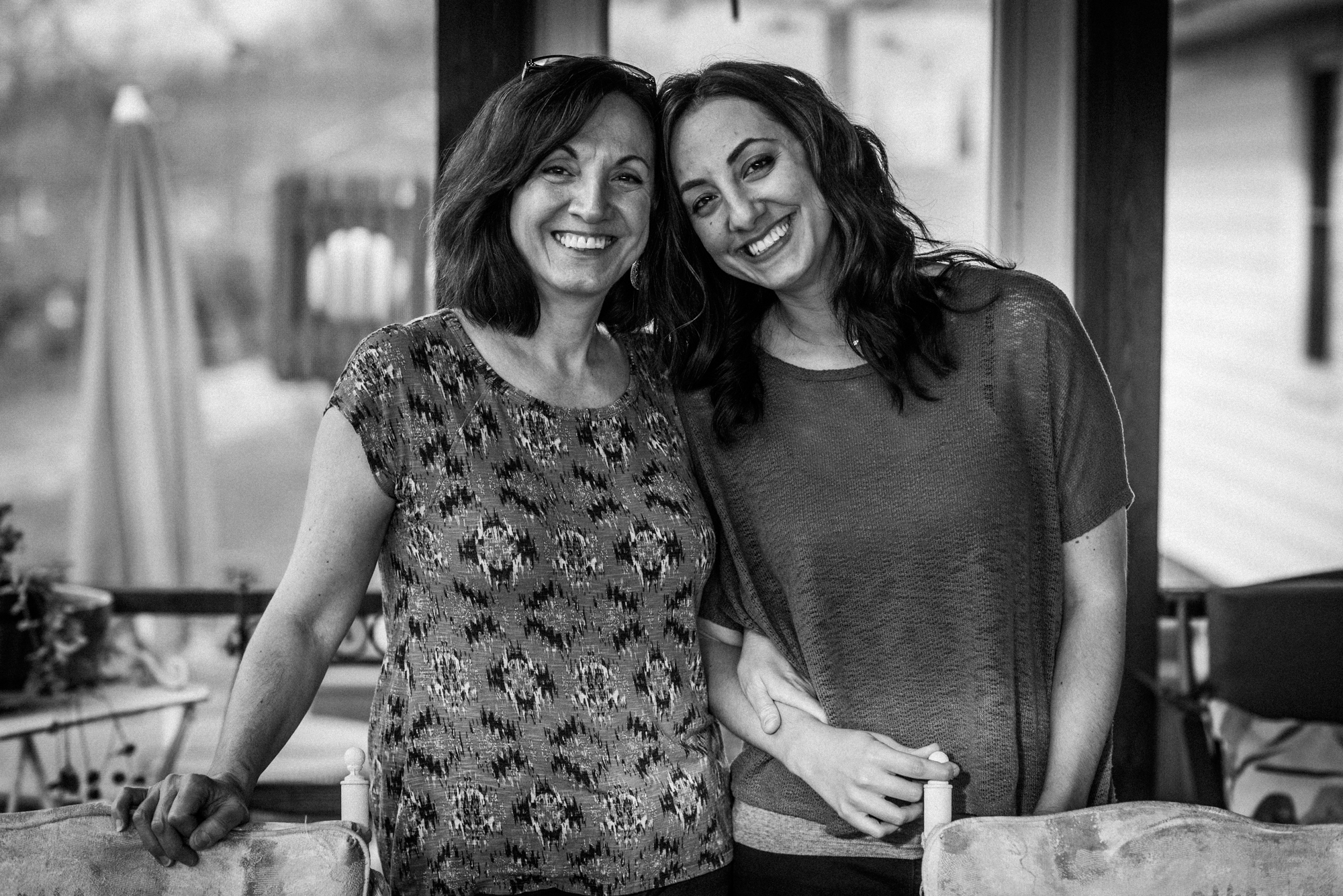

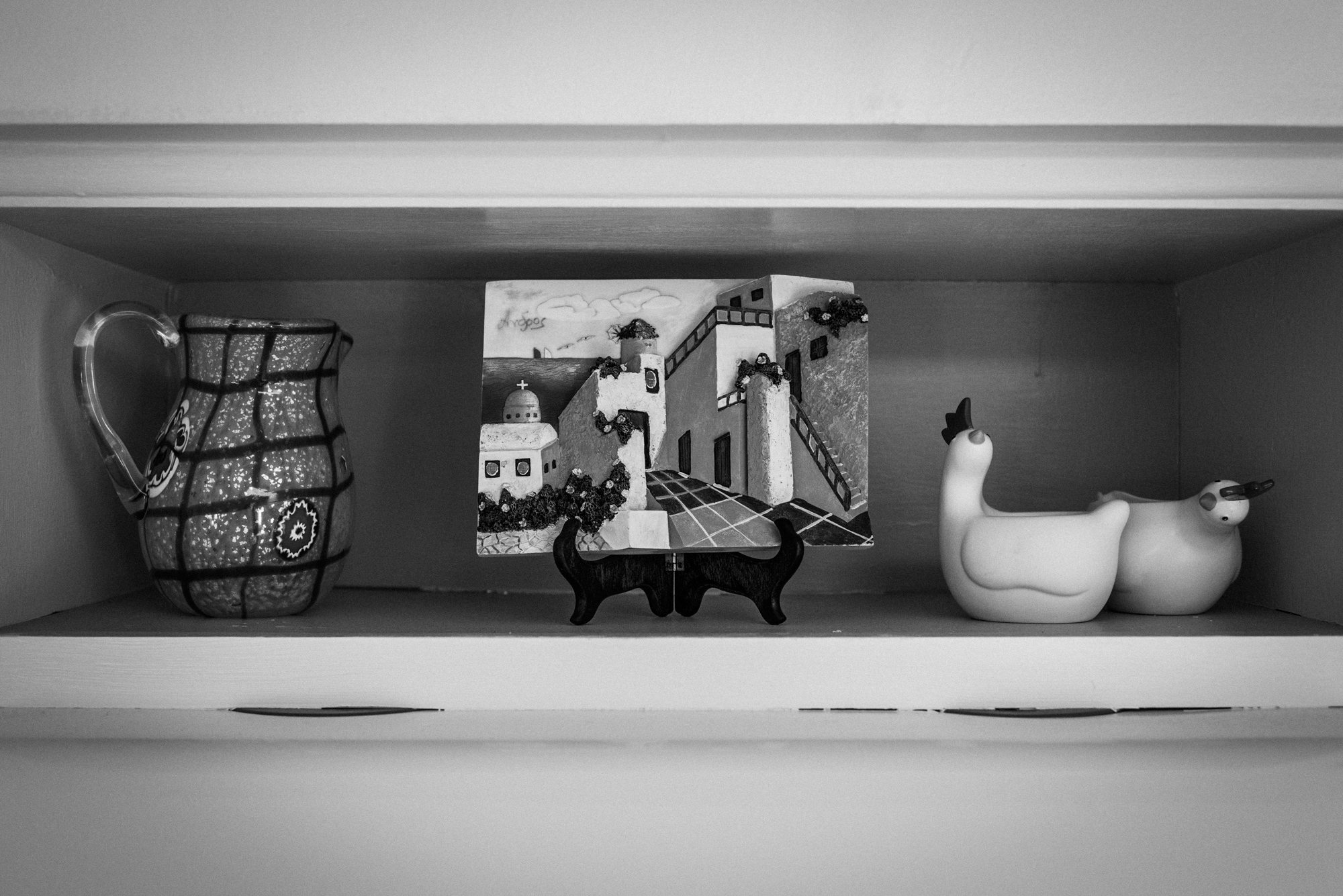
“Do you want some coffee?”
That’s the first question Lisa asks after welcoming me into her home. “I wanted to have baklava ready, but I’m really behind on my baking. It would have been nice to have dessert for you.”
I met Lisa’s daughter, Victoria, a few years back—we were sitting on a bus in Turin, Italy, amongst other delegates to Slow Food’s recurring Terra Madre event. We’ve talked at length about food in our friendship since, but this is the first time we’re actually cooking together. On the menu: soutzoukakia, an almond/egg-shaped Greek meatball.
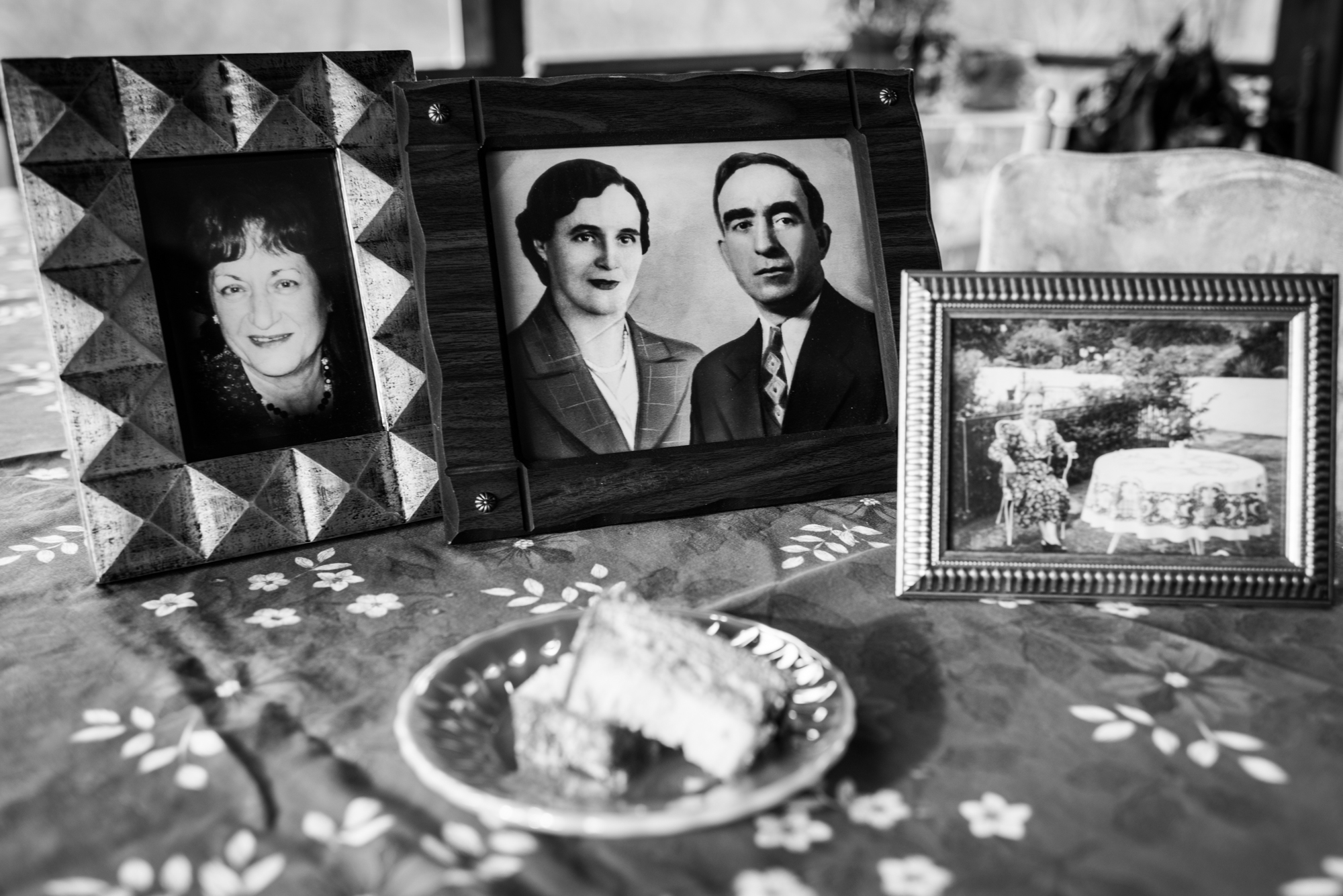
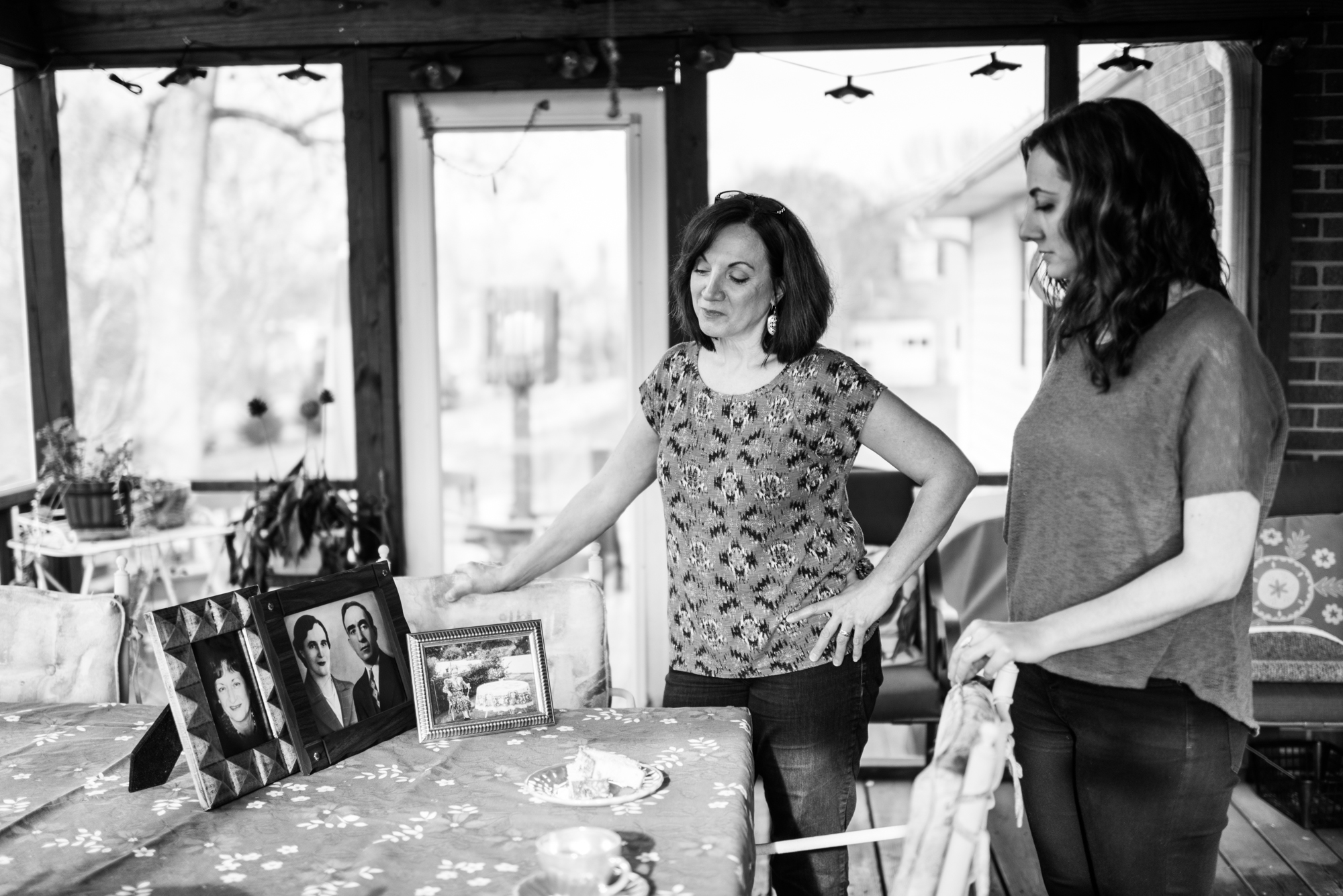
Lisa sets out a few photos of her family. “My mother, she was from the island of Andros,” one of the Cyclades islands in Greece. “With the super ferry, it’s maybe two hours from Athens.”
“Everyone there who could work, would leave on the ships and would be gone for years. My grandfather—my mother’s father—he left. It was a bad time all over the world in 1914, but the United States was the land of plenty.” He jumped ship and came to Buffalo. “He told me it was a very poor area; that they had no money, and he lived in a boarding house.”
“He saved up to go back to Greece. He was 32, and came back to the island, and bought that house that’s still standing, that my aunt lives in now. He was ready to get married. A ‘ready-made groom,’ as they say in Greece. So, he went to the island square, and he saw my grandmother from far away.”
“Who is that girl?” he asked. “She’s beautiful.”
“No, you can’t marry her,” his sister insisted. “She’s engaged to someone else!”
“Well, I don’t care. I want you to go and talk to her—find her and tell her that I want to marry her.”
“So, that’s what happened. His sister went out and found Yiayia. She agreed, and they eloped.”
“He looked like Mr. Magoo,” Victoria asserts.
“No, he was handsome! And she didn’t know who Mr. Magoo was until she came to America. He was a little short, but he was the strongest man.”
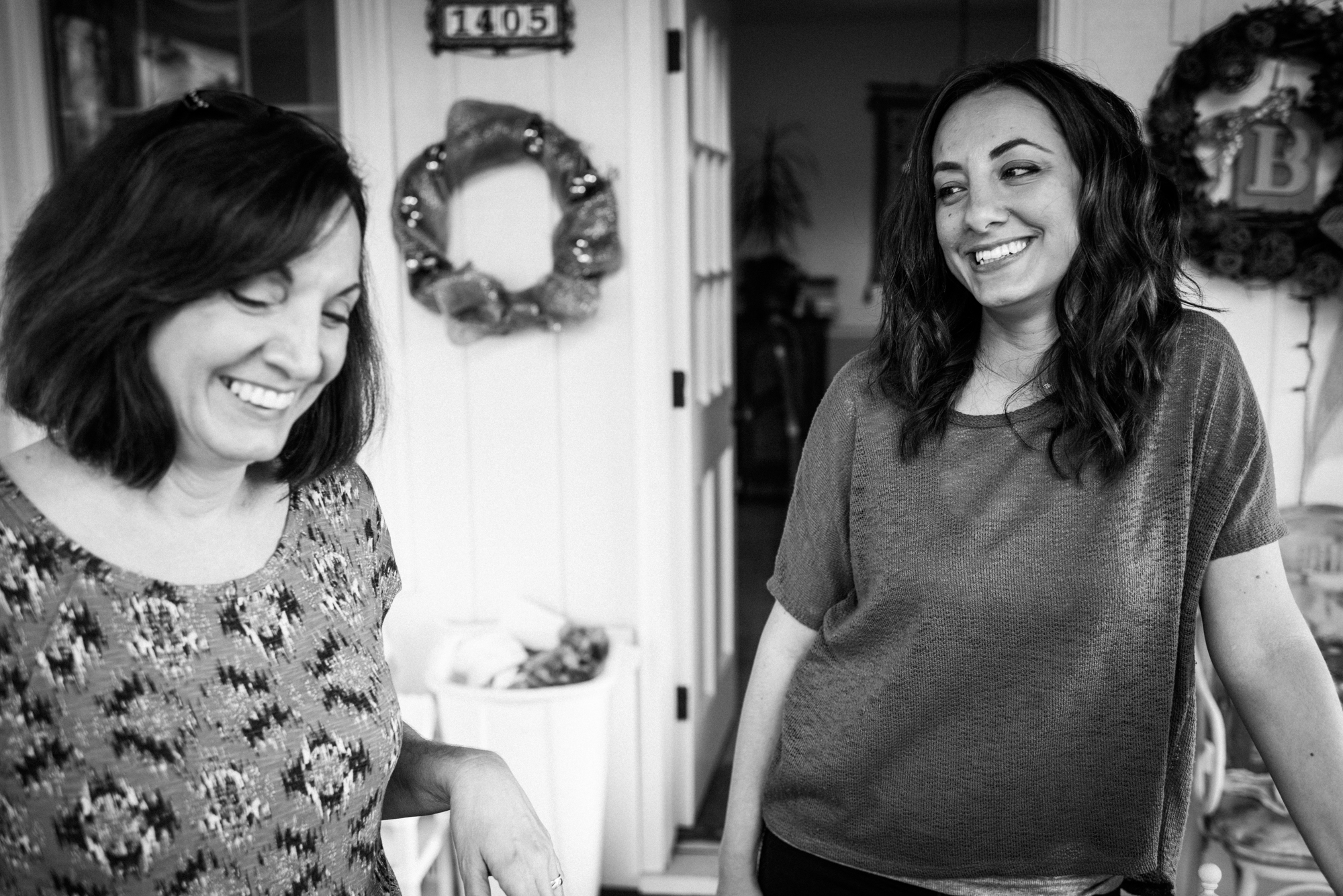
Back in the kitchen, Lisa sets out ingredients for the soutzoukakia, while Victoria researches some history behind the dish. “My great grandmother, her family came from Constantinople. My grandmother—my yiayia—they learned a lot of recipes that were a little…different.”
Victoria looks up. “They mostly attribute this dish to Smyrna (İzmir) in Turkey. But when it was still part of Greece, during the Turkish-Greek War, the Turks burned it down in 1922, so a lot of Greeks basically came back to Greece as refugees (if you want to use that term). The recipe’s attributed to them.”
“It’s anybody’s guess who made it first,” Lisa concedes.
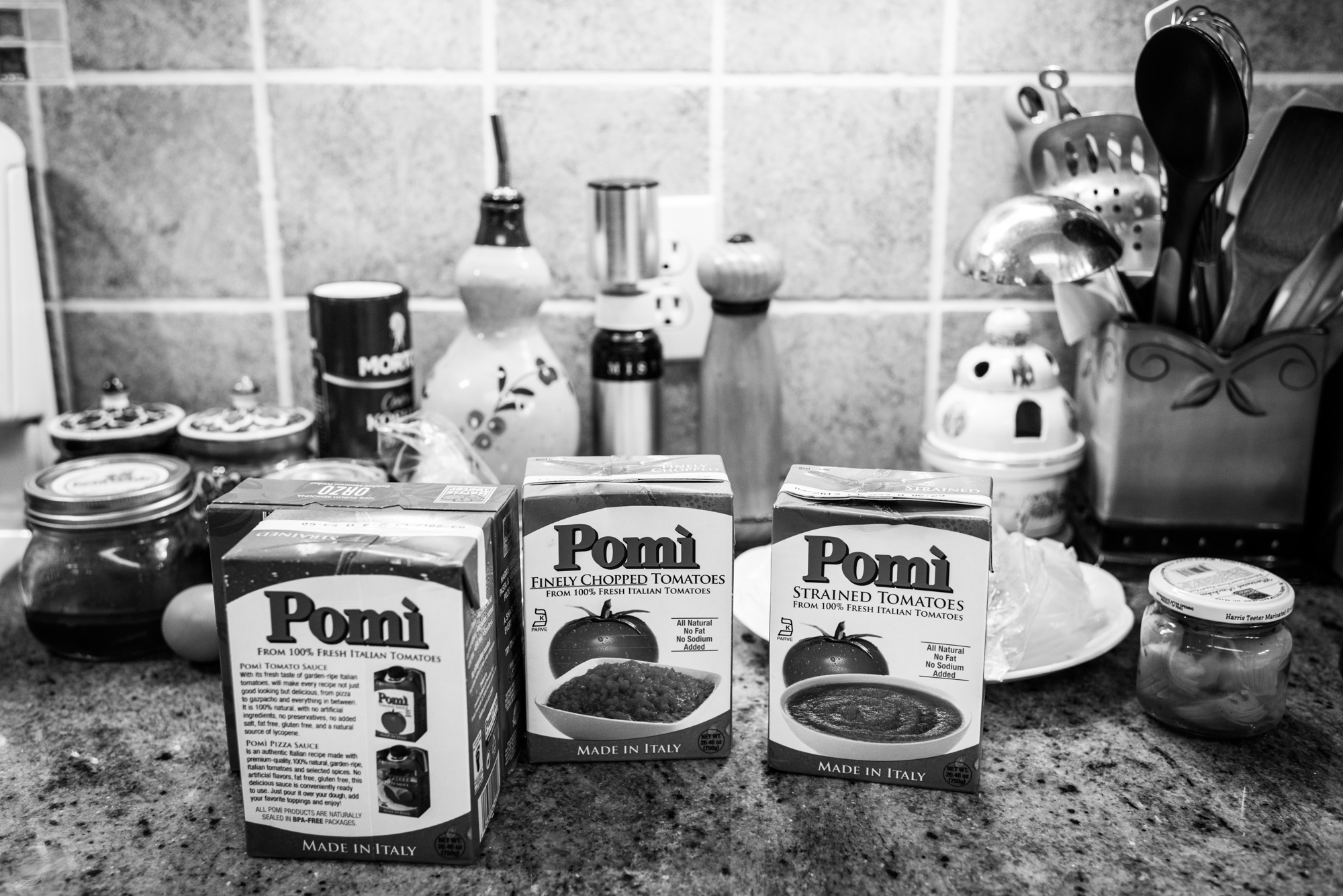
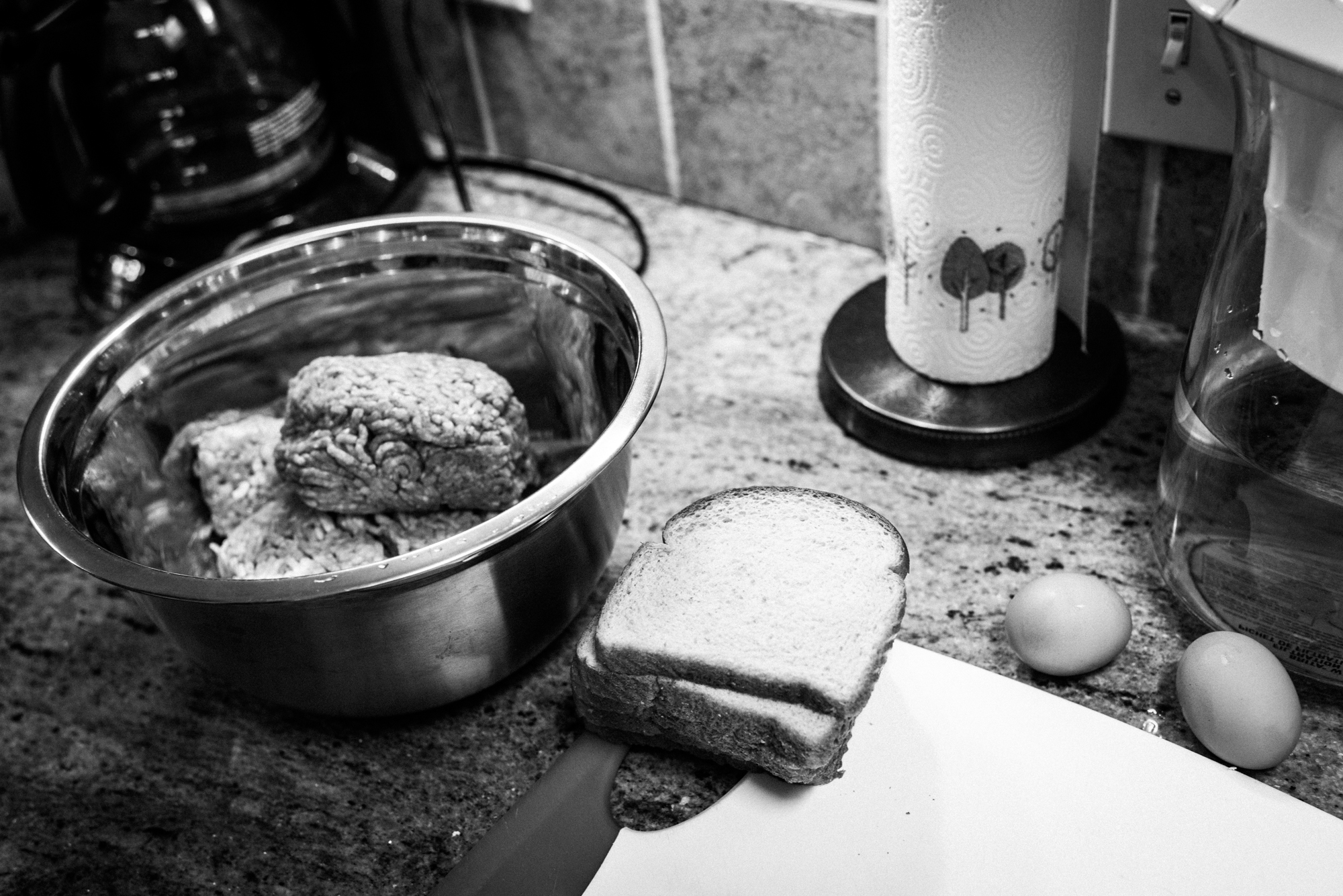
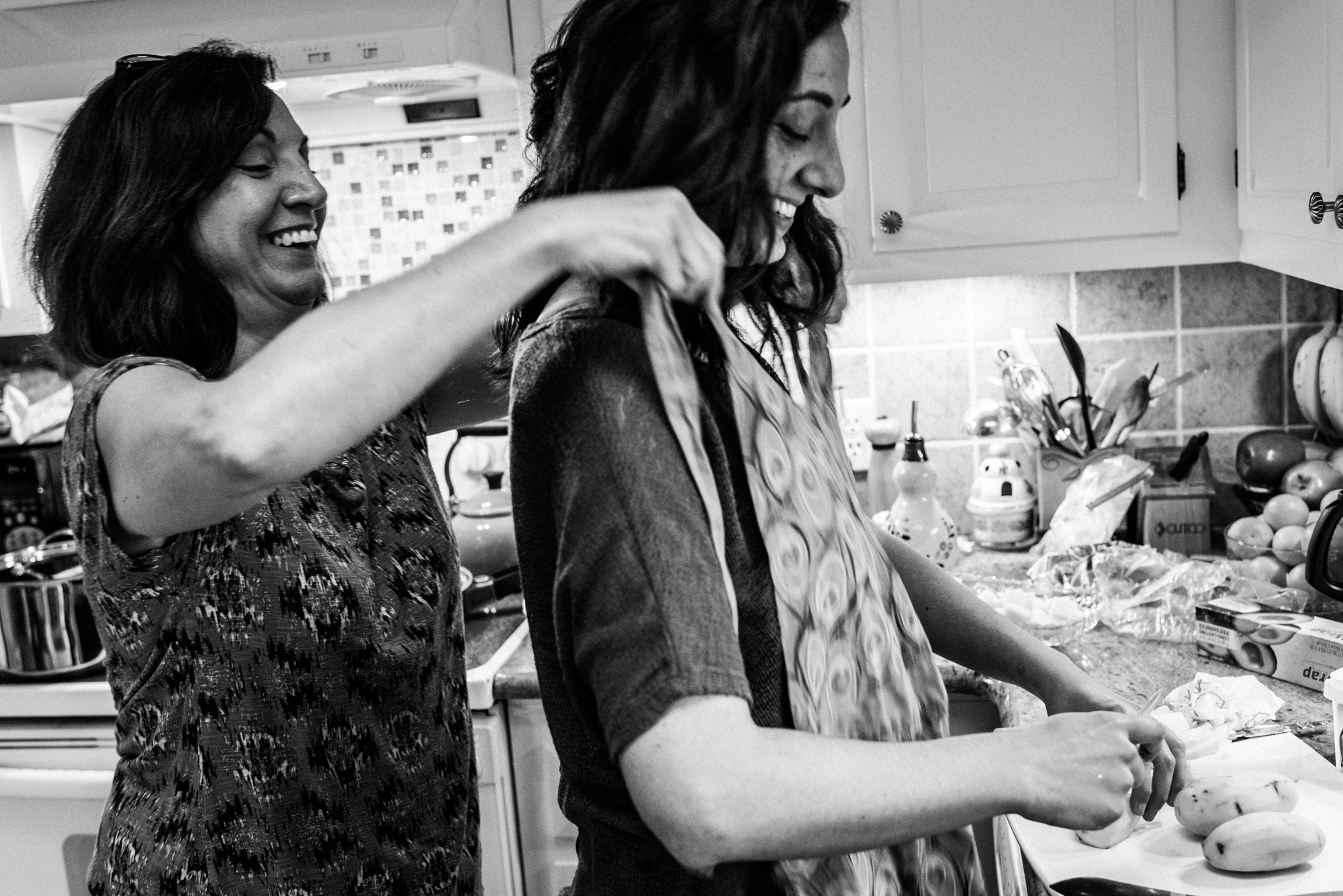
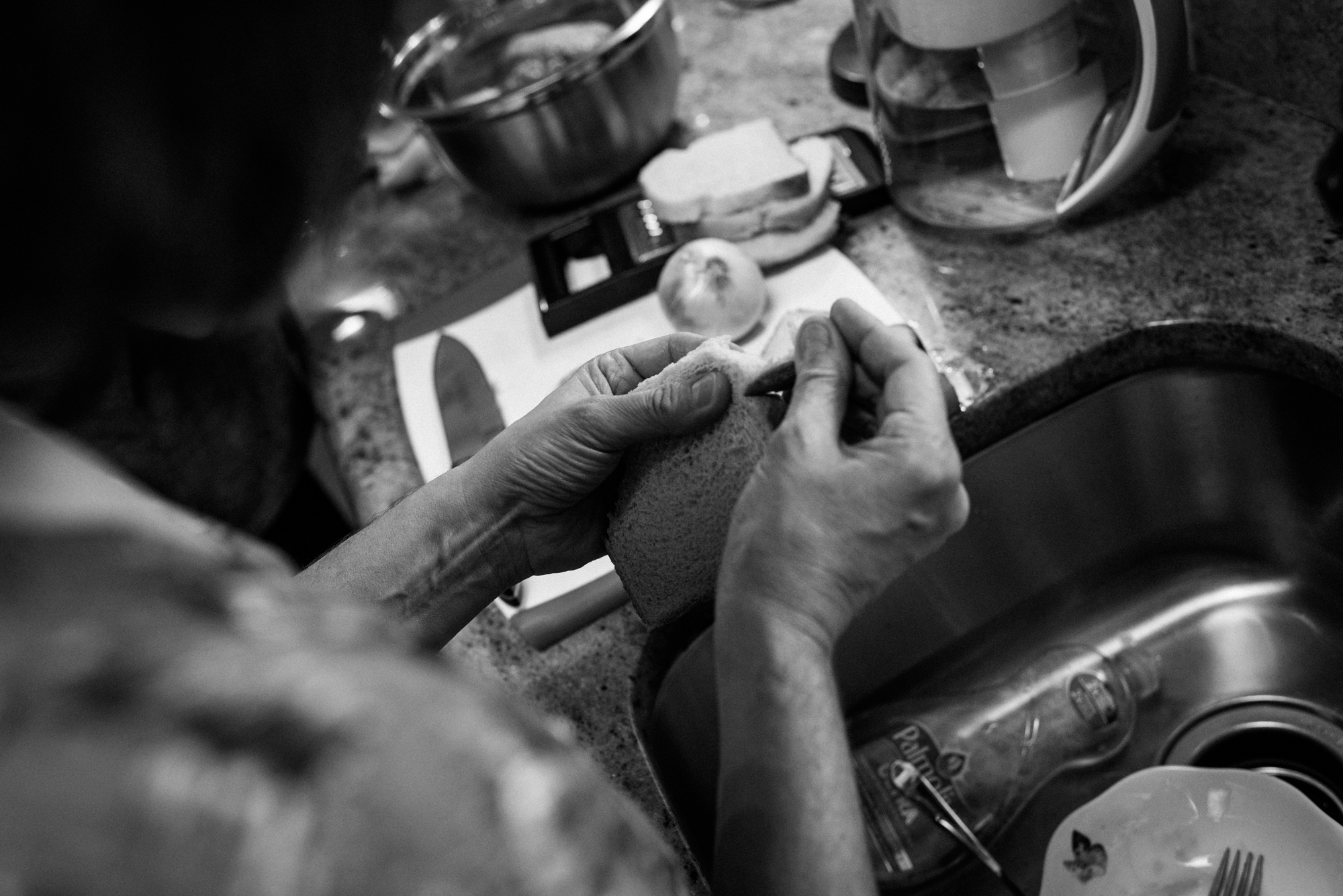
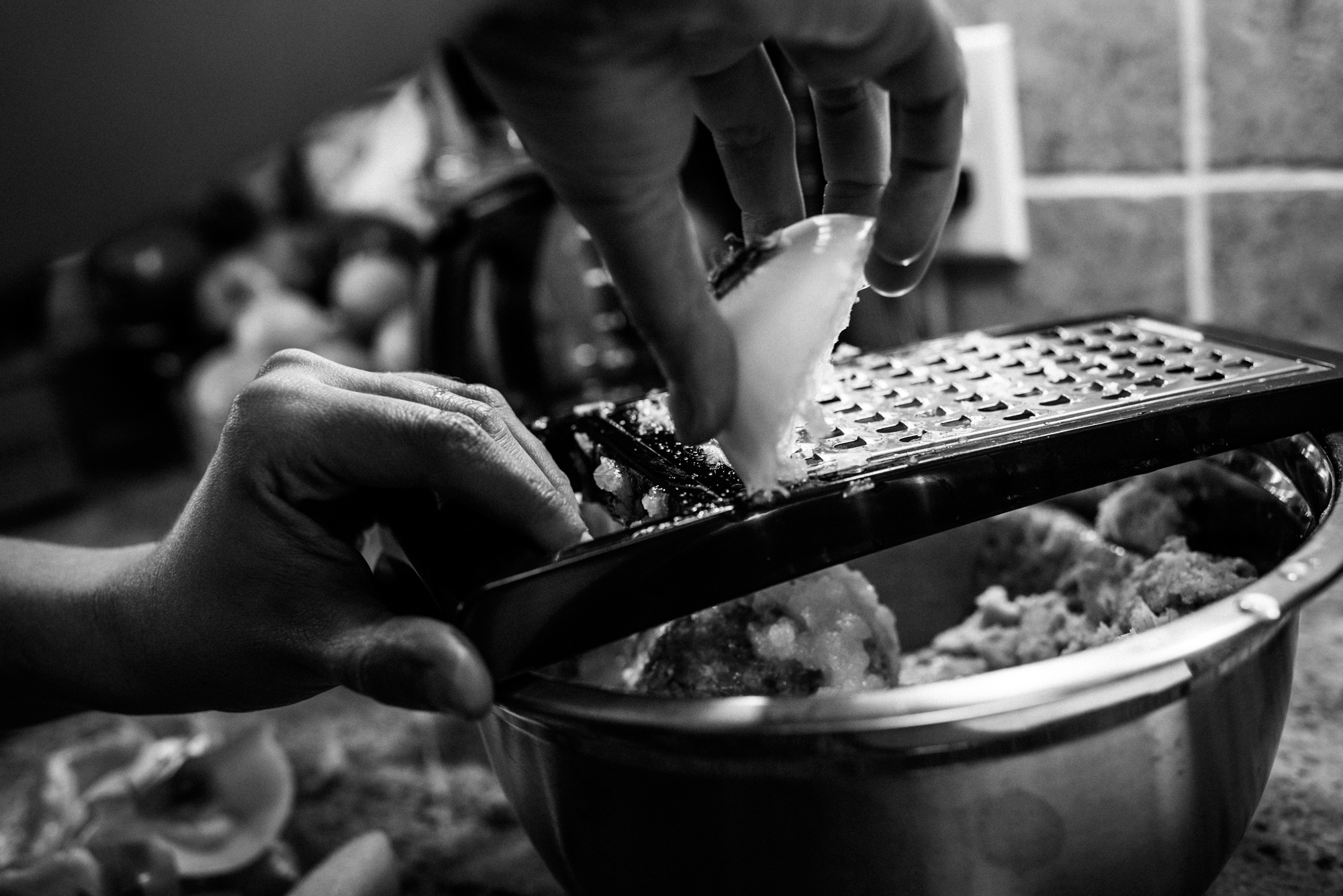
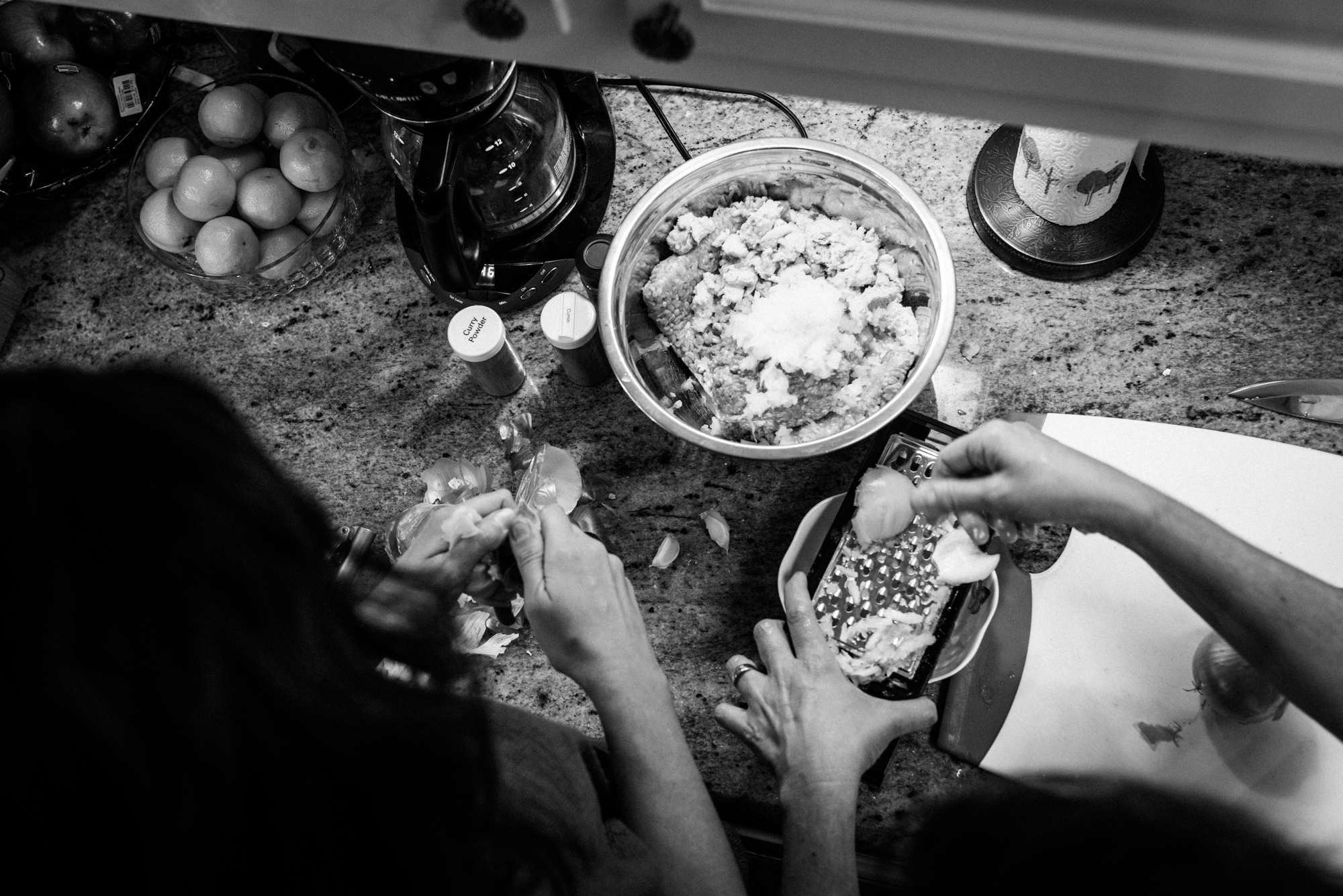
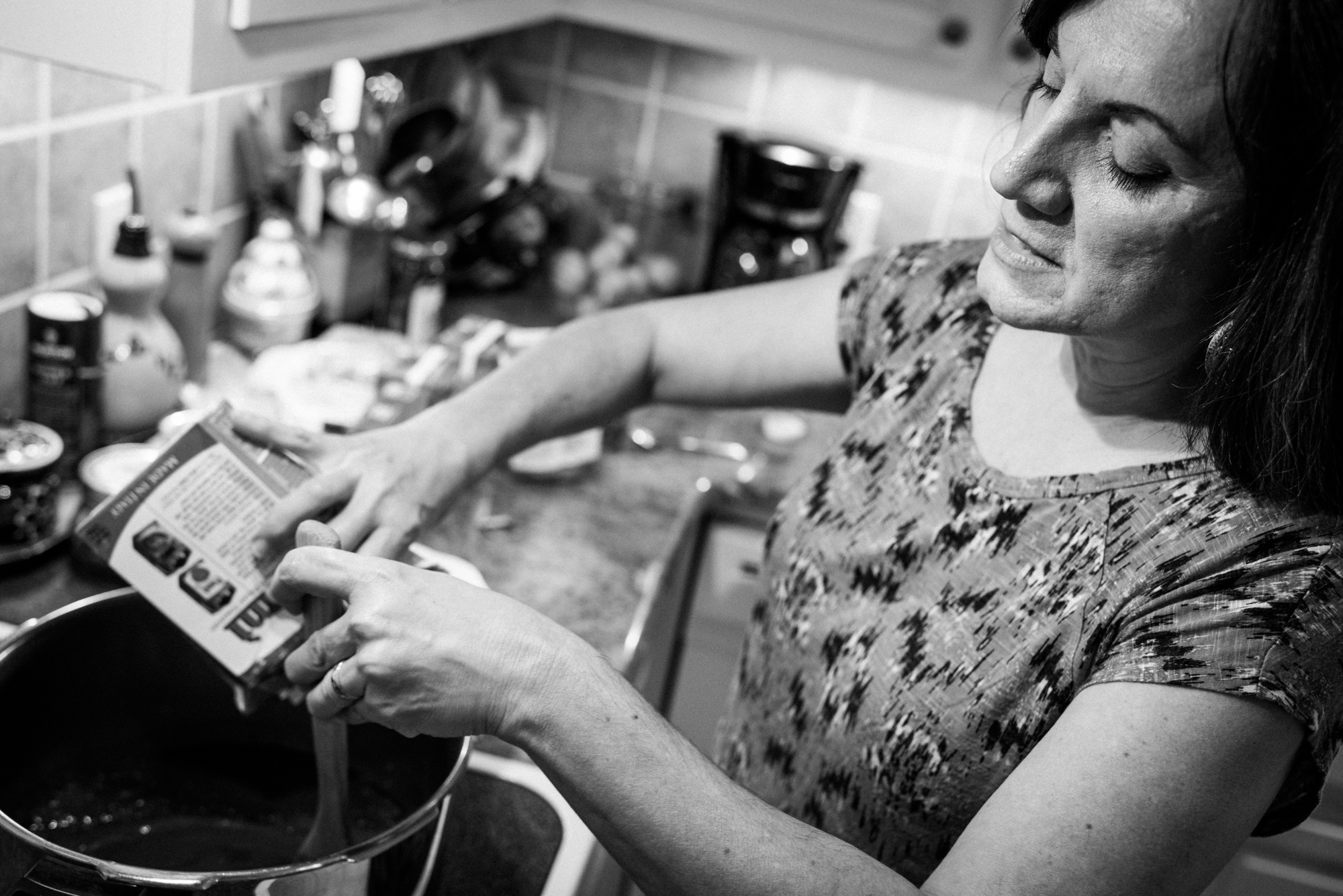
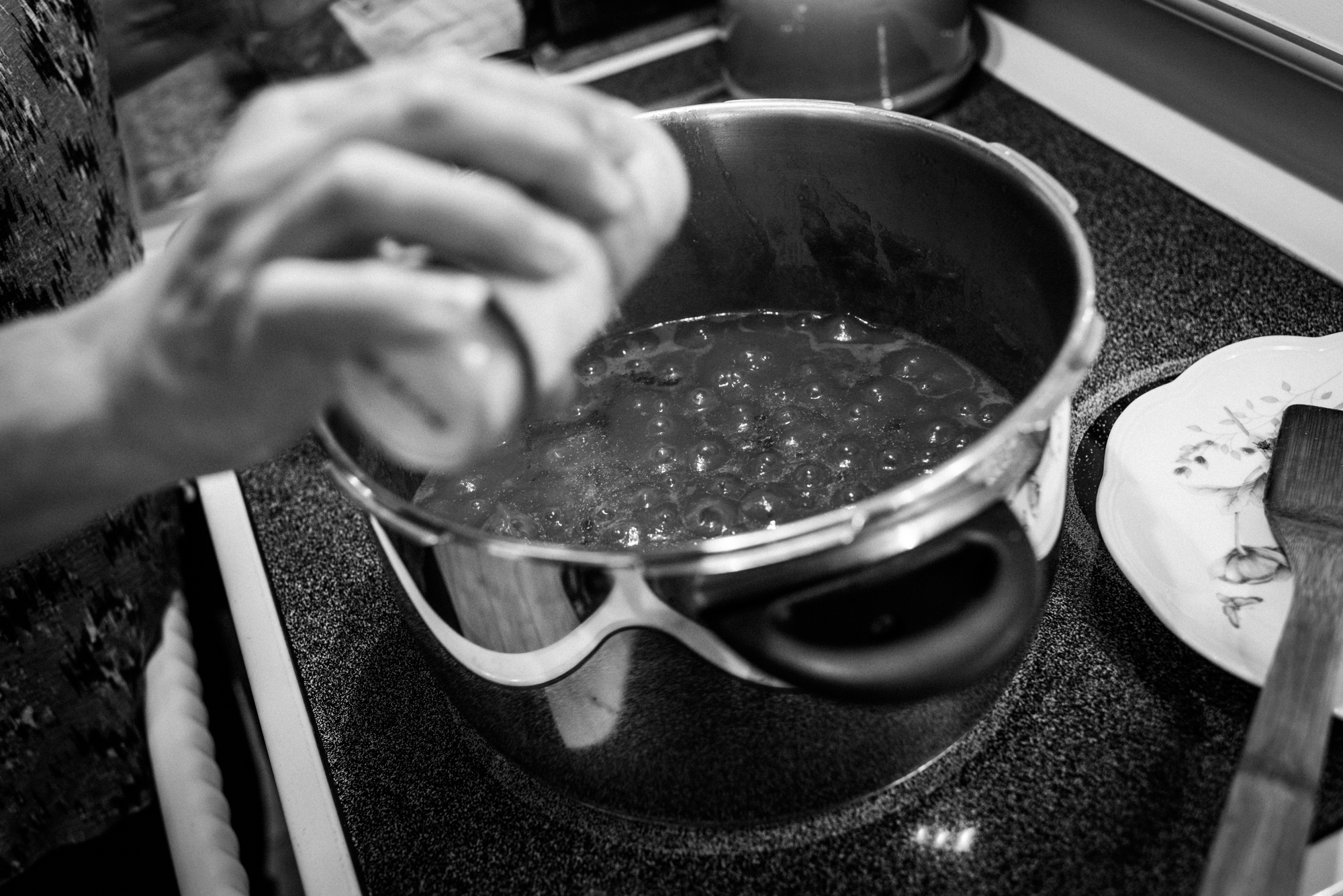
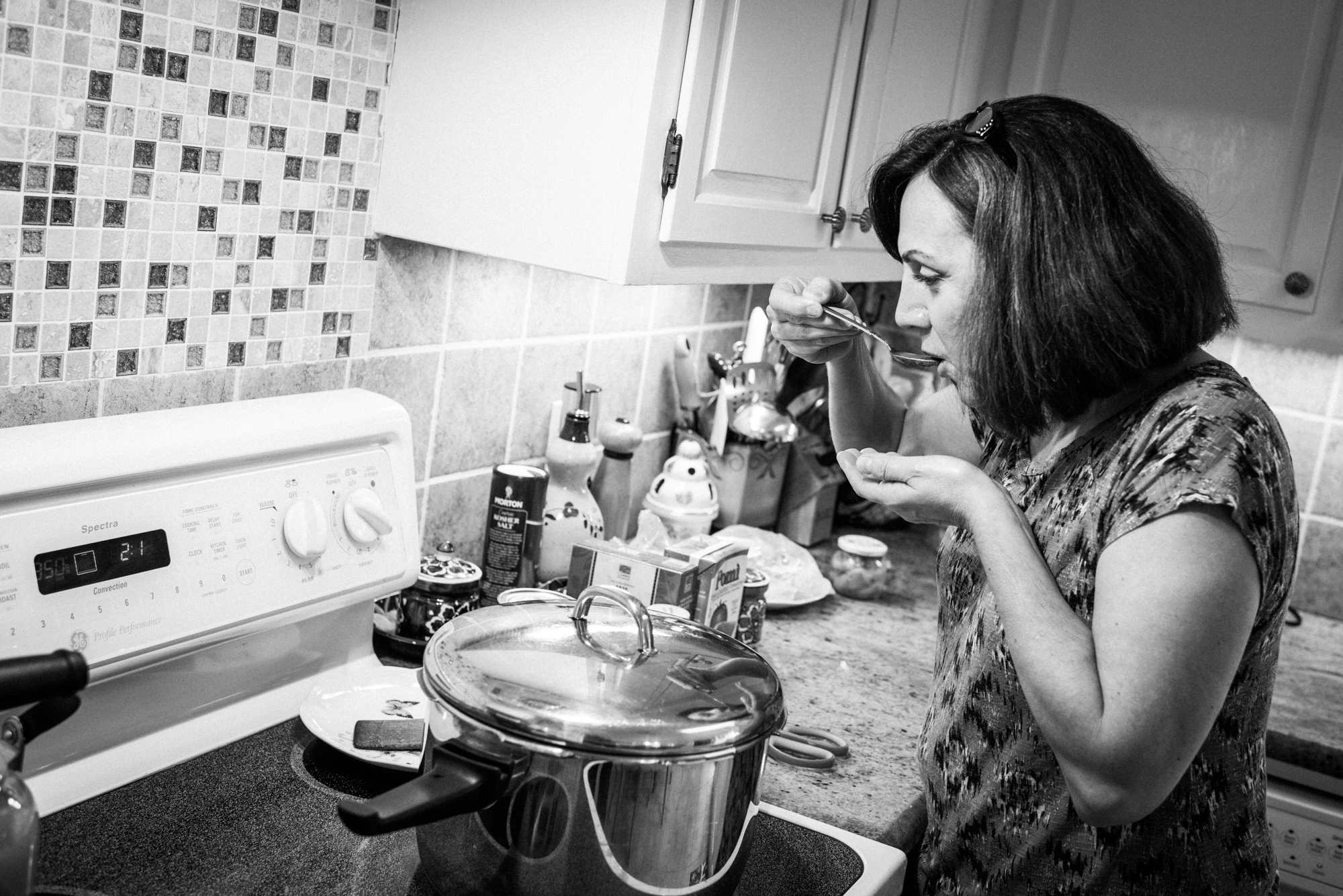
“My yiayia used cinnamon in her sauces—there’s cumin in the soutzoukakia, and cinnamon in the sauce.”
But there’s also something unique to this recipe.
“My mother, she was making this for company. For some reason, instead of grabbing cumin, she grabbed the curry; she put curry in the sauce, she put it in the meatballs. We were eating it, and we liked it, but there was something different about it. She would buy spices because she liked they way they looked, but I don’t think she’d ever used curry, and she put a LOT in.”
That addition is carried forward in this recipe, but in moderation. “We liked it, but we didn’t want to make it overpowering and completely change the traditional way it was supposed to taste, so we put a dash in the sauce.”
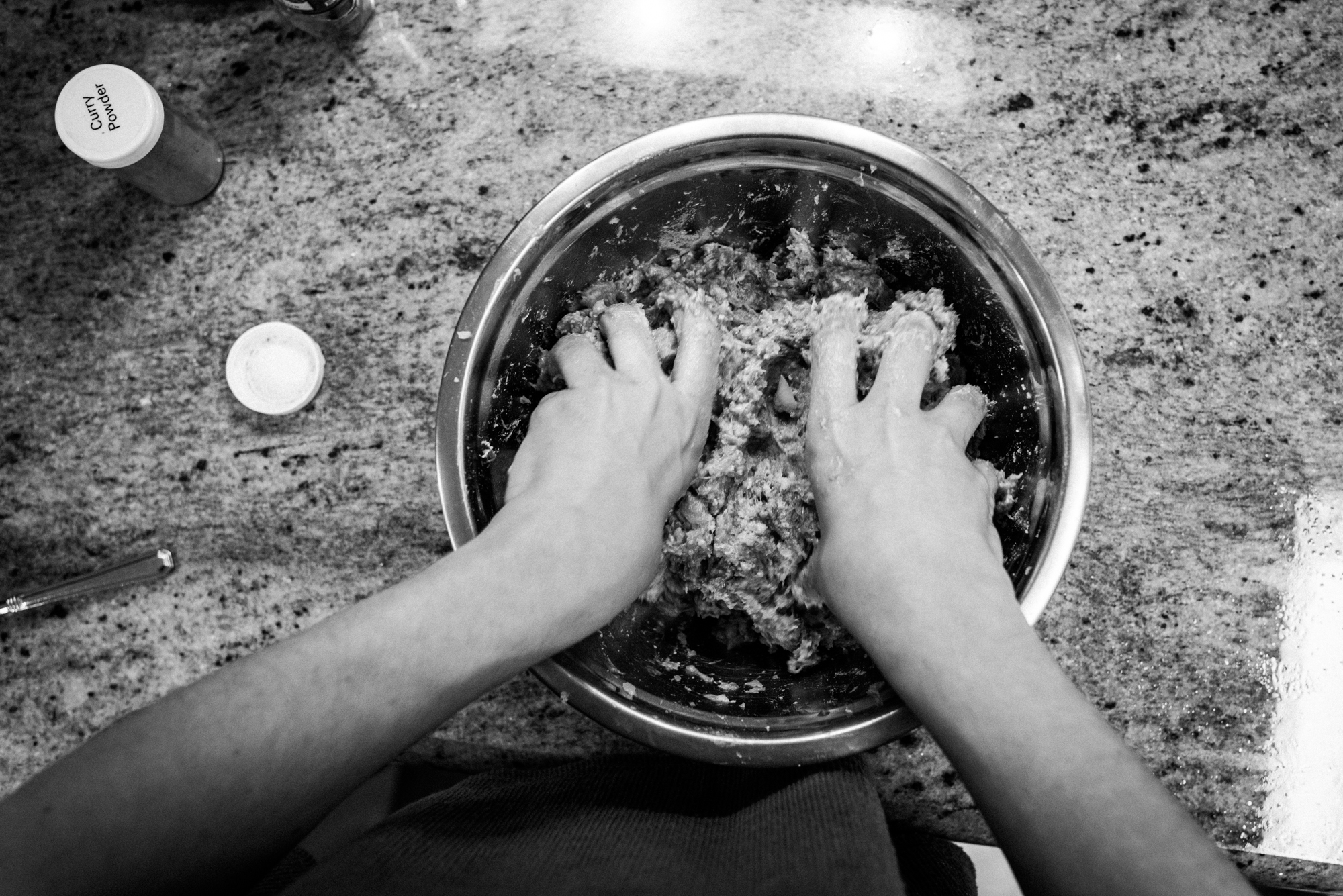
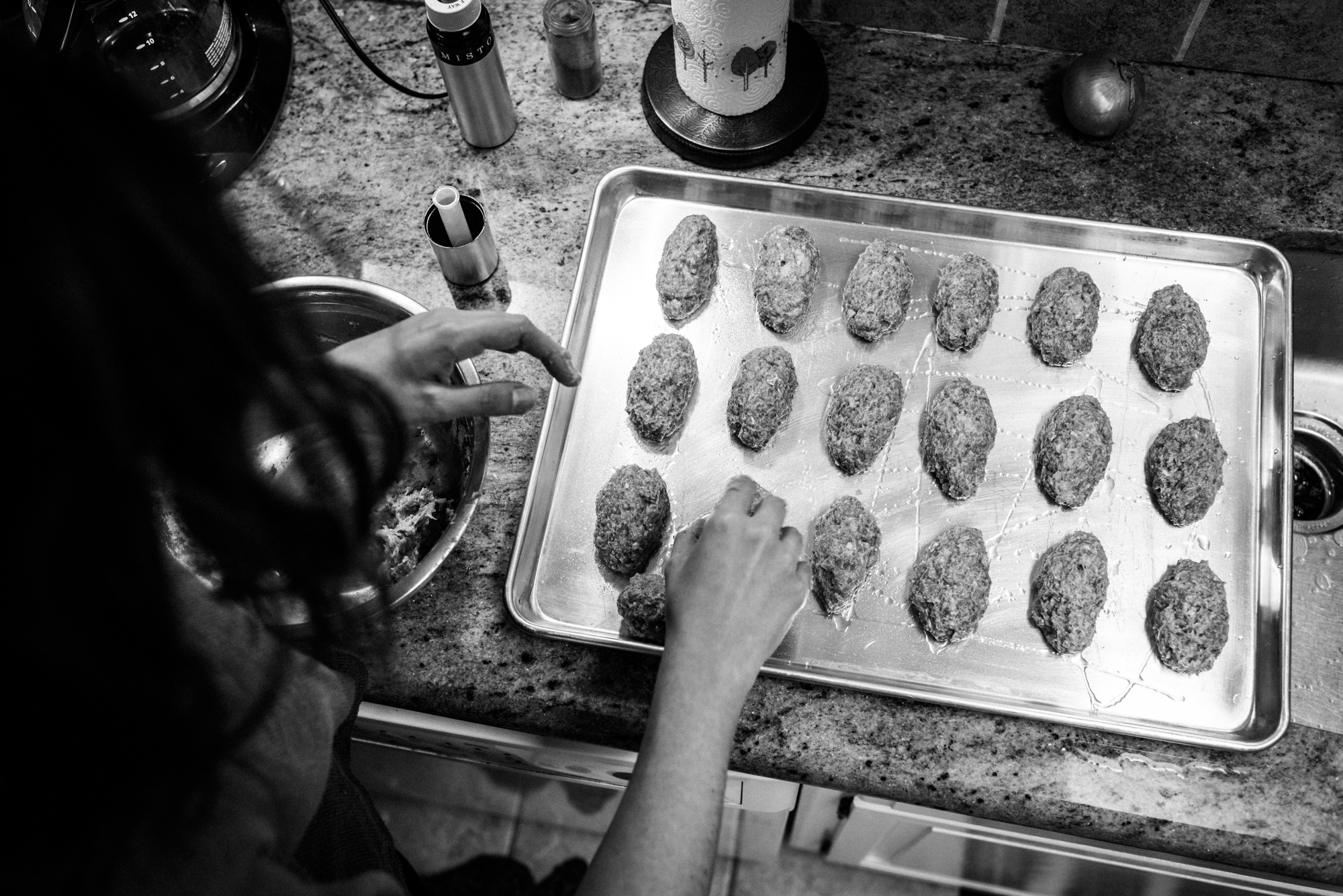
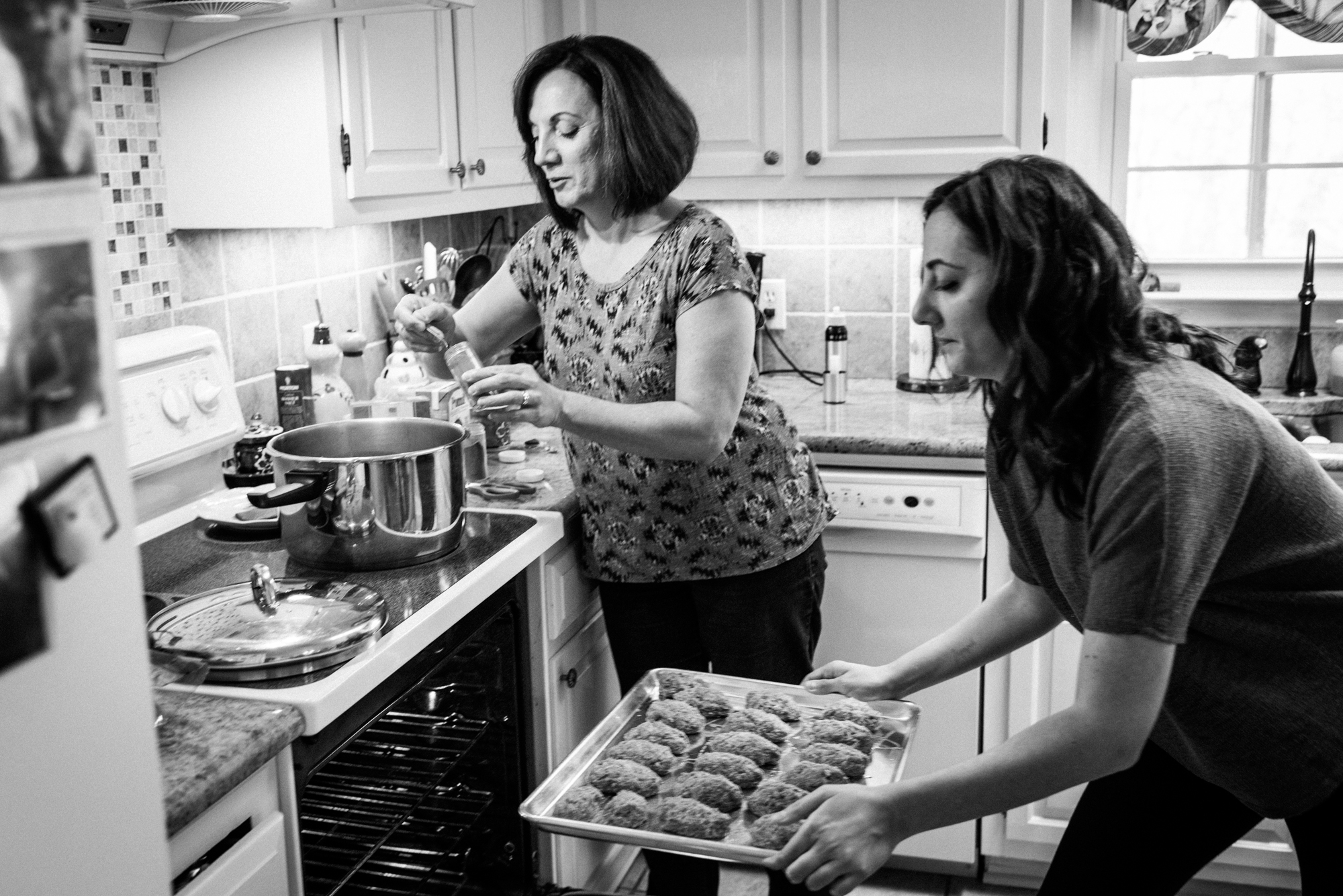
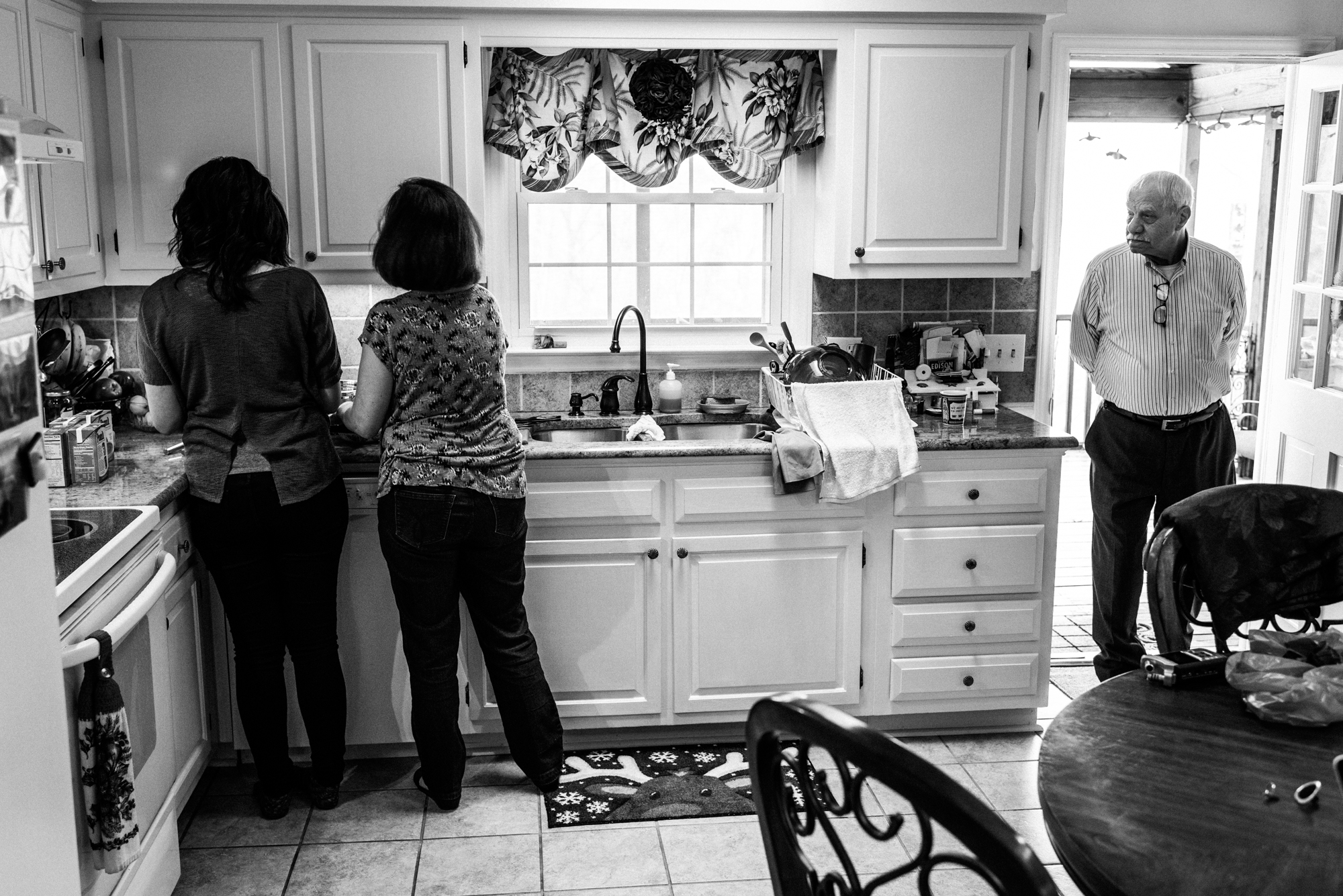
Victoria’s grandfather, Hercules, comes up stairs to see what’s going on. He takes a seat on the couch in the adjacent room. As the meatballs go into the oven, Lisa once again offers coffee. This time, I accept.
“If you’re waiting for it, you cannot let it boil up and spill over. That’s bad luck,” Lisa explains, heating up the briki (a small kettle for coffee).
“They say it’s for a single man,” Victoria adds. “You won’t get married.” (This, I would learn, is a recurring theme in Greek superstition.)

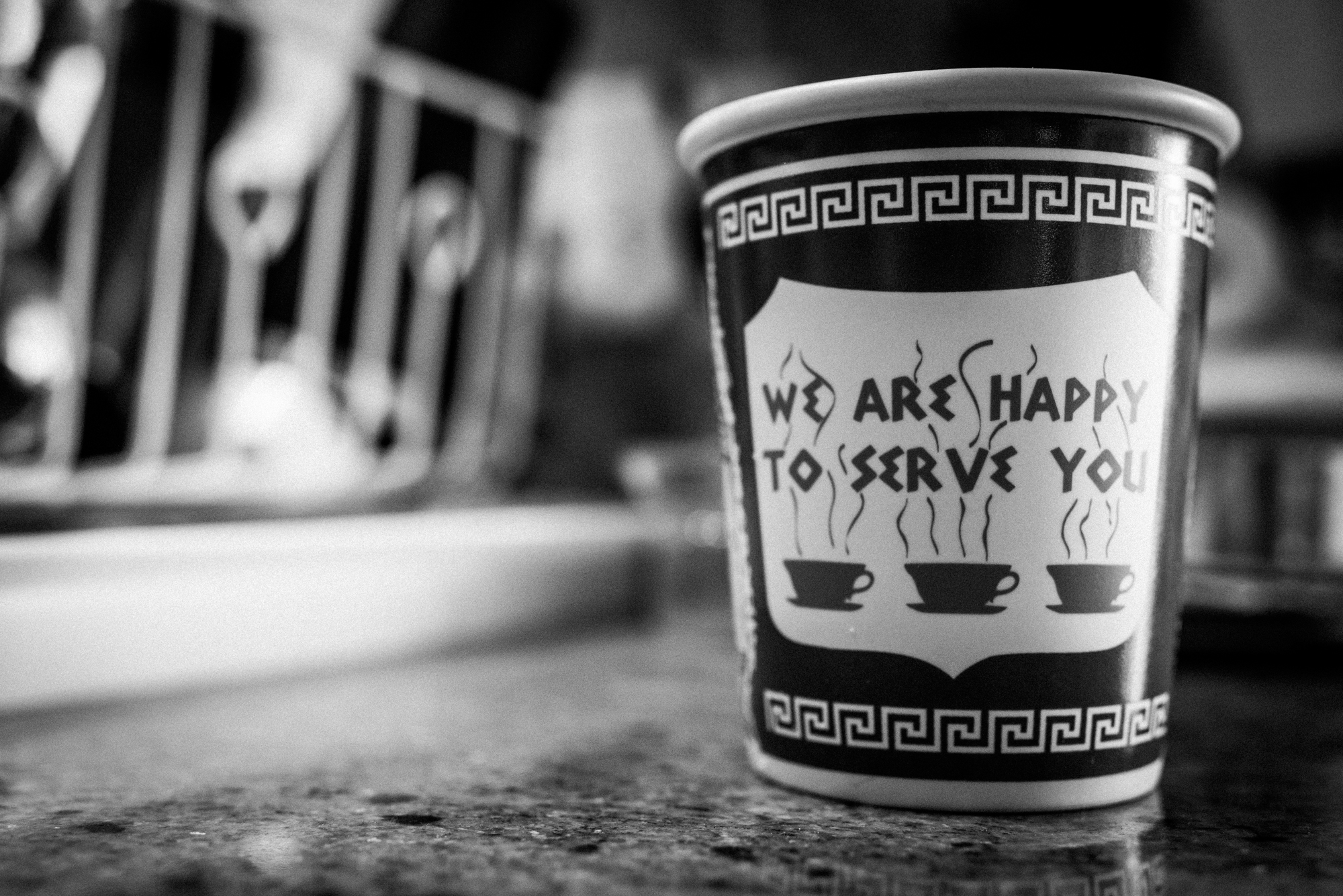
Soutzoukakia (Greek Meatballs)
Ingredients
For the sauce:
- 16 oz. can of tomato sauce 4
- 1 can of chopped tomatoes, drained, or a couple small fresh tomatoes, like roma
- 1 tsp cinnamon
- 1 stick cinnamon
- A dash of curry powder
- 1 Tbls olive oil
- Red wine (optional)
1 We used lamb.
2 “Instead of using breadcrumbs, we use the soft white bread, and wet it. It gives it a nice fluffiness. My mom takes the crust off.” – Victoria
3 It’s possible that this was doubled, so add to taste.
4 “I like to buy a good sauce, like the Pomi brand.” – Lisa
Instructions
Preheat the oven to 350°F. Combine the ground round, ground pork/lamb, onion, and garlic in a large bowl. Soak the bread slices in water, squeezing out the excess liquid, and crumble into the bowl. Add cumin, olive oil, salt and pepper. Mix everything together by hand.
Roll the meatballs in an oval shape, and place each on a cookie sheet lined with aluminum foil and drizzled with a little olive oil. Bake the meatballs until they are golden brown on the outside, or look almost fully cooked (you don’t want to overcook them!).
“Traditionally, people fry them. We stopped doing that years ago, and it’s just as good.”
While the meatballs are baking, add the tomato sauce, chopped tomatoes, cinnamon, curry powder, olive oil, salt, pepper, and red wine (optional) in a large pot. Let the sauce simmer on low. When the meatballs are almost done, carefully place them in the sauce. Cover the pot and let it cook on low to medium heat for 15-20 minutes (or until you think it’s done). Add more salt and pepper to taste.
Serve with orzo, rice, or mashed potatoes. “In the restaurants they serve it with thick French fries,” Victoria tells me. Lisa fries up a batch, and we’re ready to eat.
“We don’t need a salad,” Lisa insists, as she sets the table. “We’ll take out some Greek cheese, some olives, and make it authentic. If we’re going to mess up and eat a lot of fatty foods, might as well go all the way.”
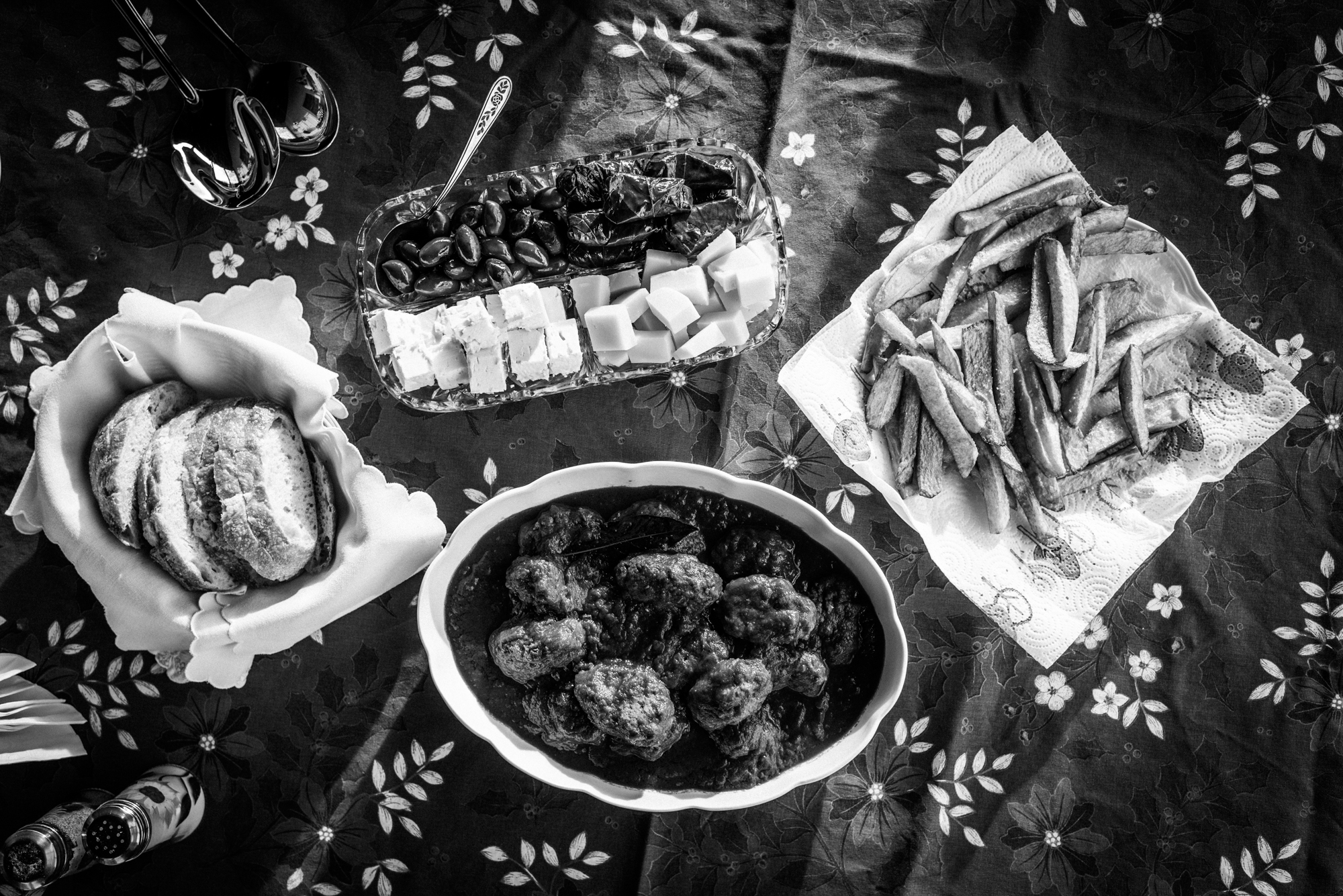
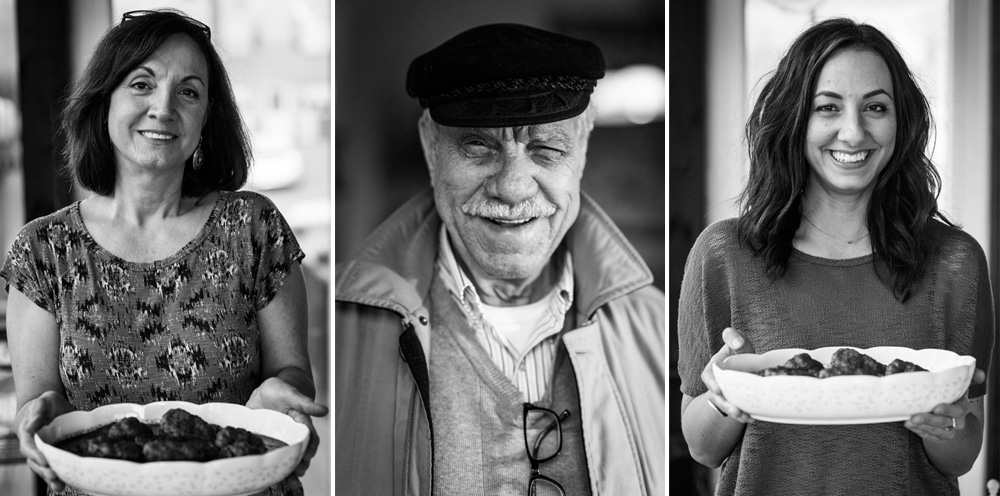
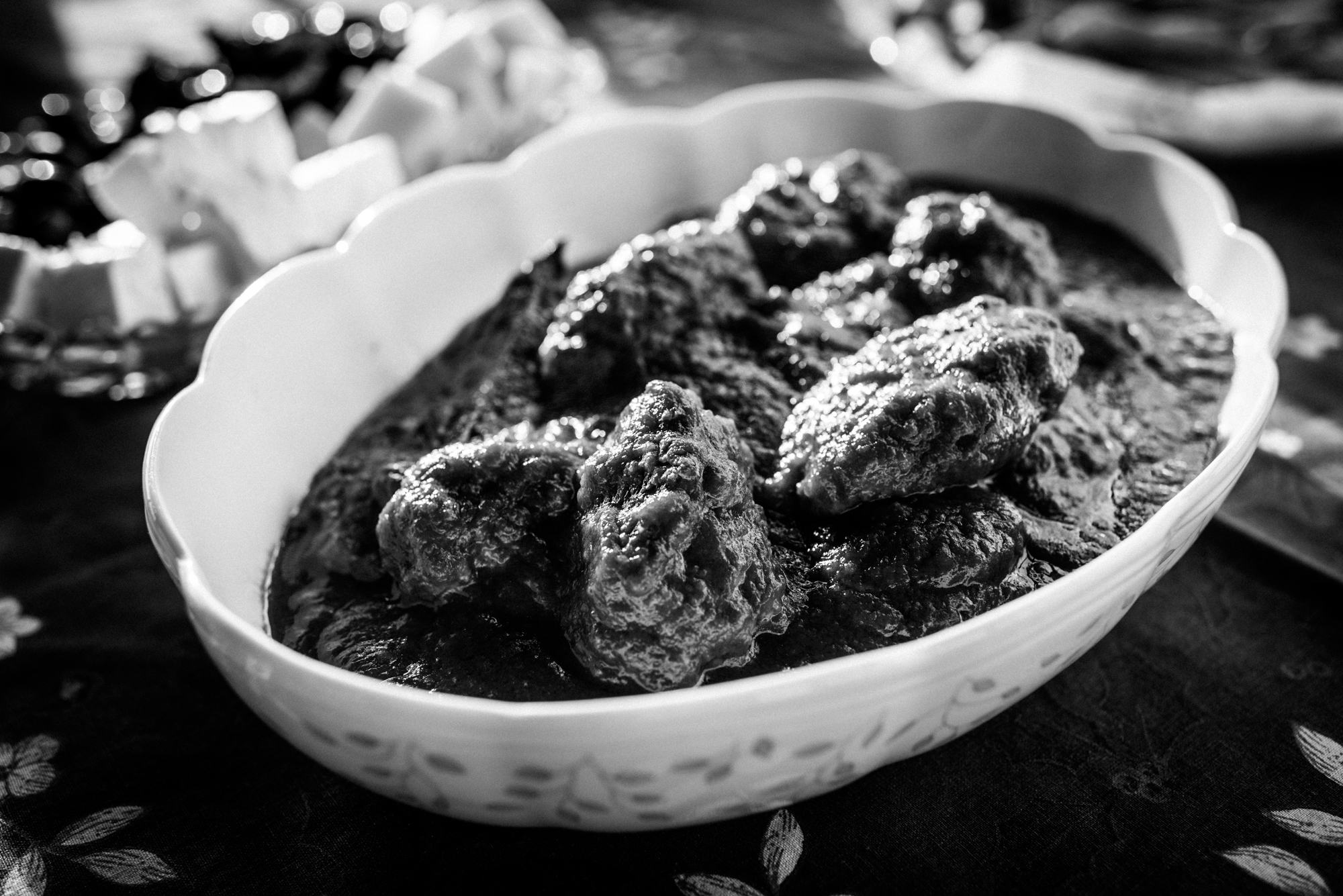


Want to preserve your family’s history?
Recipes and photos go a long way, and I’d love to help you collect both. Tell me a little more about the meals you share together, and I’ll reach out about opportunities to participate in this project.
